It’s easy to forget about the coastal beach towns when you’re standing in the middle of Guanajuato. The heartland of Mexico is a stunning city set in a picturesque valley surrounded by mountains on all sides, hugging you in towards its beating and vibrant heart. You’ll find it 50 miles west of San Miguel de Allende, and although both share a similar near-perfect climate and colorful colonial architecture, Guanajuato has a personality of its own – youthful and less polished, in a good way.
The beautiful historic center has been a UNESCO World Heritage site since 1988 and trails up and down steep hills in an artful display. Vibrant colors stand out as much from the colorful houses as from the creative murals found throughout the labyrinthine streets.
The majority of the creations are centered around “La Muerte” and Mexico’s love for the cult of death.
Nowhere is this love more in display than at the fascinating if a little gruesome Mummies Museum. It’s a must see in Guanajuato and an enlightening introduction to local customs and traditions.
The naturally mummified remains of locals who died during a cholera outbreak in the mid-19th century were disinterred between 1865 and 1958 for failure by relatives to pay cemetery taxes. Tourists can now pay a small fee to witness the spectacle, read some of the deceased’s life stories, and learn the grisly reason behind some of the mummies’s frightening expressions: some of those buried were still alive at the time!
Just as you think it couldn’t get more spine-chilling, you’re presented with the infants and their mothers. The museum claims to have the world’s smallest mummy…
Thankfully the joyous, rainbow-colored world outside should help you erase these frightful images for a little while as you continue to explore the gorgeous city.
Although reminders will likely show up at every corner… What a beauty though!
Street snacks are plentiful and delicious, just like pretty much everywhere in Mexico! I’m partial to a freshly grilled gordita – a masa “pocket” stuffed with cheese, potatoes, chorizo, etc.
Hidalgo Market is Guanajuato’s main market where locals buy groceries and a quick bite to eat.
The second floor has vendors selling crafts and souvenirs, with a commanding view over the food stalls.
Continue along Avenida Juarez to reach the Plaza de los Angeles, a pleasant and quiet square.
It is mostly famous today for standing at the entrance of the city’s most romantic and famous street: The Callejón del Beso (or Alley of the Kiss) which is narrow enough to allow a loving couple to kiss from windows on opposite sides.
Back on the main street, feel the pull of the gate to Jardin Reforma and step inside.
The leafy square is the perfect place to rest your weary feet and enjoy a shaded break from the Mexican sun.
Take the stairs to your right to have a look at San Roque Temple.
From here it’s time to wander at will through hundreds of narrow cobblestone callejones (alleyways), feeling Guanajuato’s distinct European flavor and enjoying its mostly pedestrian only historic centre.
Plaza de San Fernando is especially gorgeous.
When you’ve worked up an appetite, make your way to nearby Mestizo.
The exquisite restaurant is housed in the former gallery of famous potter Capello (his son is the owner and chef).
Get ready to savor top quality Mexican cuisine at gentle prices.
Tuna carpaccio Mexican style
Chicken with the house mole
Next, follow the quaint Positos street going east…
…until you arrive two blocks later at the former home of Diego Rivera which has been converted into an excellent museum.
The famed Mexican muralist was born in Guanajuato and you’ll be able to imagine his early years in this house on top of admiring an outstanding collection of his sketches, drawings and paintings.
The splendid University of Guanajuato opened its doors in 1828 and remains one of the oldest universities in Latin America.
It’s hard not to feel dwarfed/stunned by the famous staircase leading up to this fine neoclassical structure.
Another stunning building is right down the street, the Temple of the Jesuit Order.
The ornate Churrigueresque styled facade merits a closer look as does the large interior.
Wherever you walk you’re likely to end up at some point at Plaza de la Paz. Historically the city’s main plaza, it is now the administrative centre of Guanajuato and a fine place to admire the magnificent yellow Basilica of Guanajuato.
Templo de San Francisco
Santos Cafe definitely falls into the “unique setting” category with its terrace on a bridge – a fantastic location for people-watching.
The true heart of the city is Jardin de la Union, a triangle shaped plaza lined with some of the city’s best bars and restaurants and constantly buzzing.
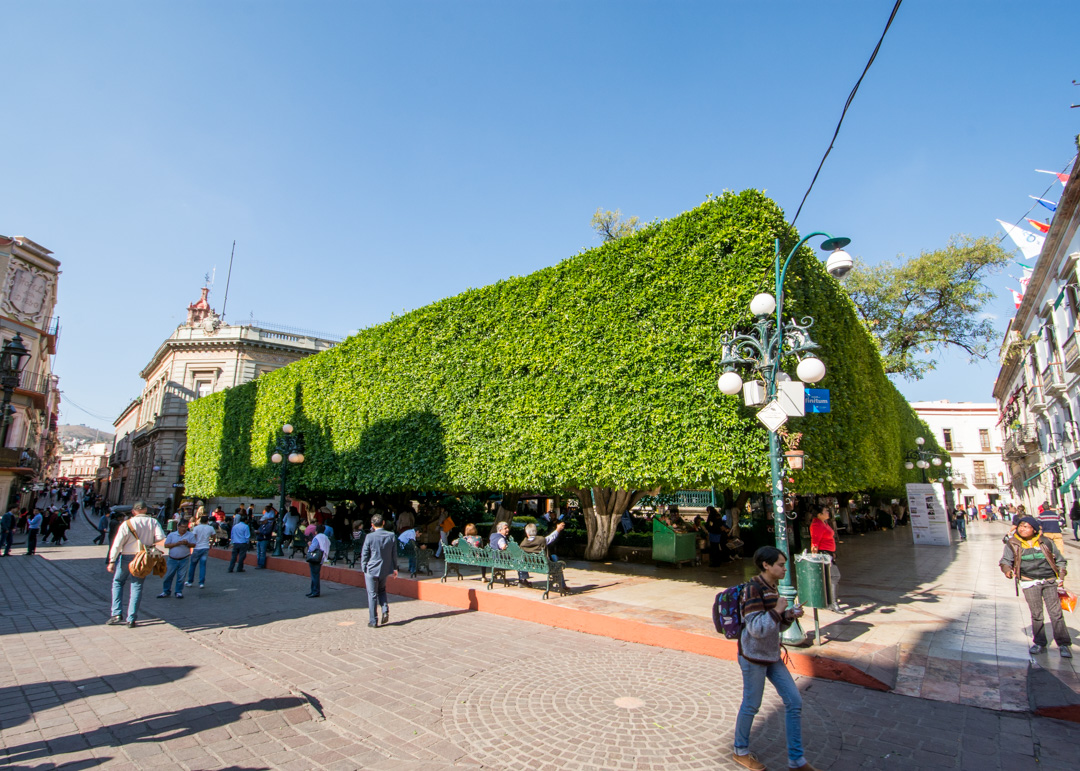
The elegant square cut trees are its most noticeable feature and provide a welcoming shade in the middle of the day.
Right across the street stands the beautiful Teatro Juárez, the city’s opera house. The steps leading to the splendid neoclassical building are a favorite meeting place for locals and tourists, but I suggest standing across to admire the ensemble of columns and Greek statues.
Walk to the back of the theater to reach the entrance to the funicular which will bring you swiftly up to the El Pipila statue,
While seeing up close the huge monument in honor of a local hero of the War of Independence is impressive, it’s the unbeatable panoramic views over the city that make the trip worthwhile.
The entire historic centre of Guanajuato is laid out before your eyes, and you’ll be able to easily identify most of your stops around the city from up here.
Guanajuato was so pretty from down there, you’ll be shocked just how extraordinarily beautiful it is from up here, cradled by the mountains of the Sierra Madre. You’ll most certainly get sucked right back in, eager to explore more of these charming colonial streets.

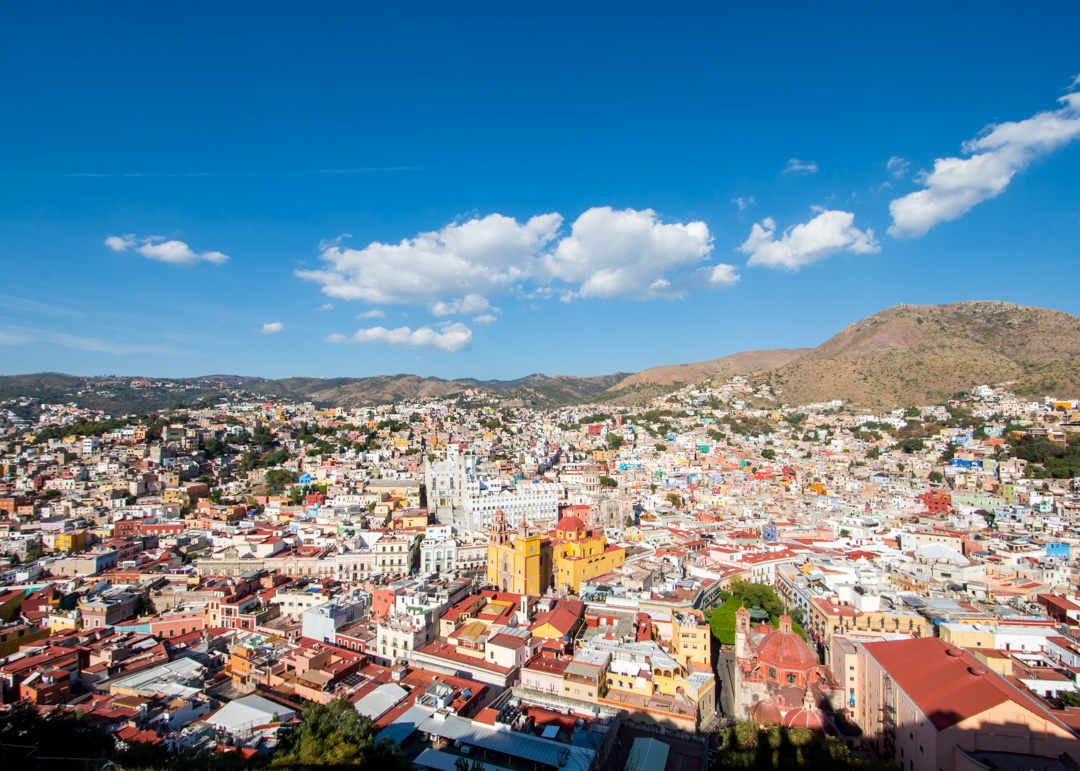
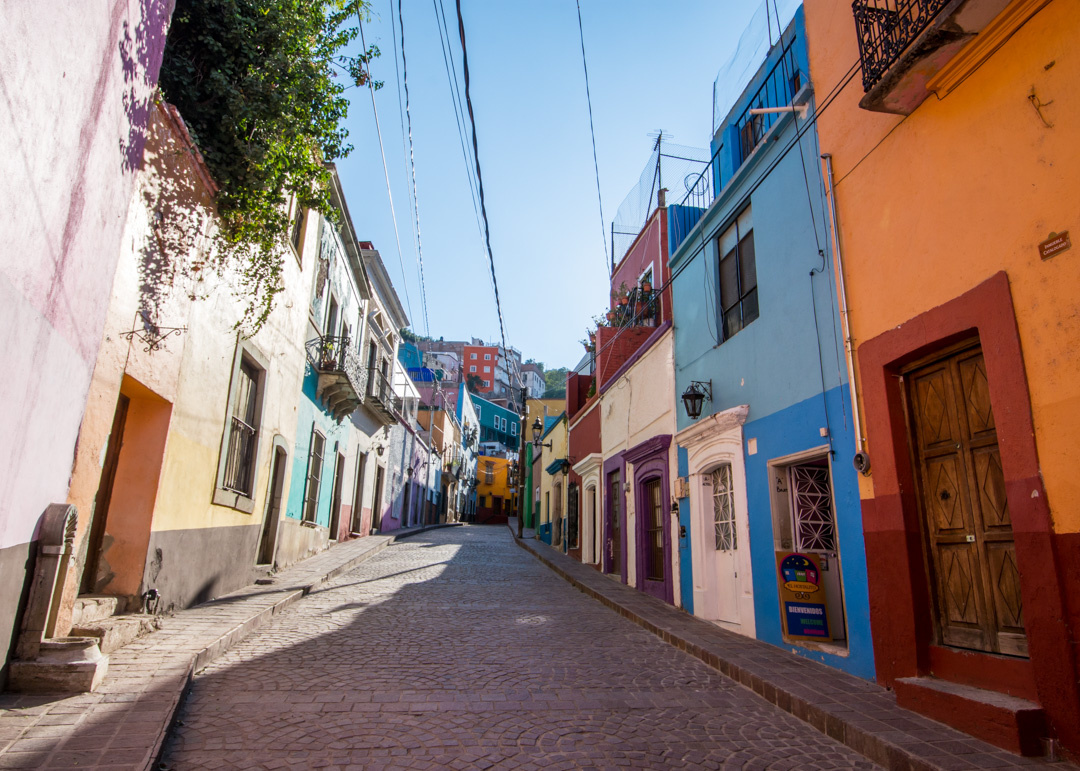
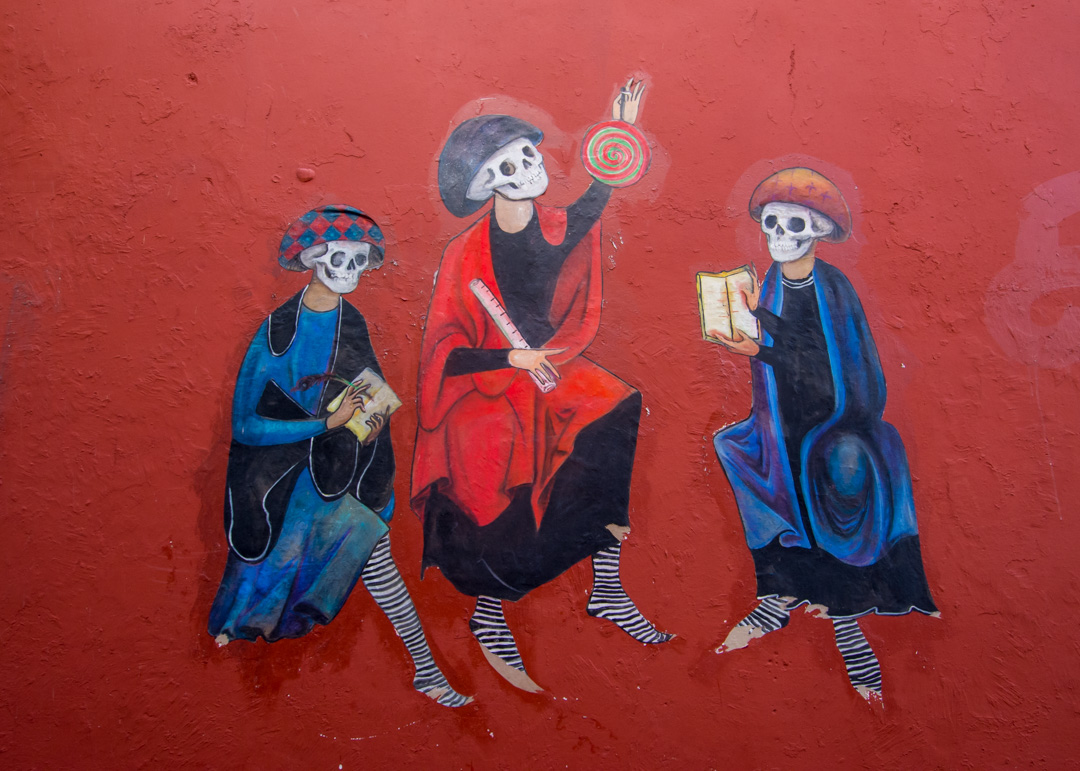
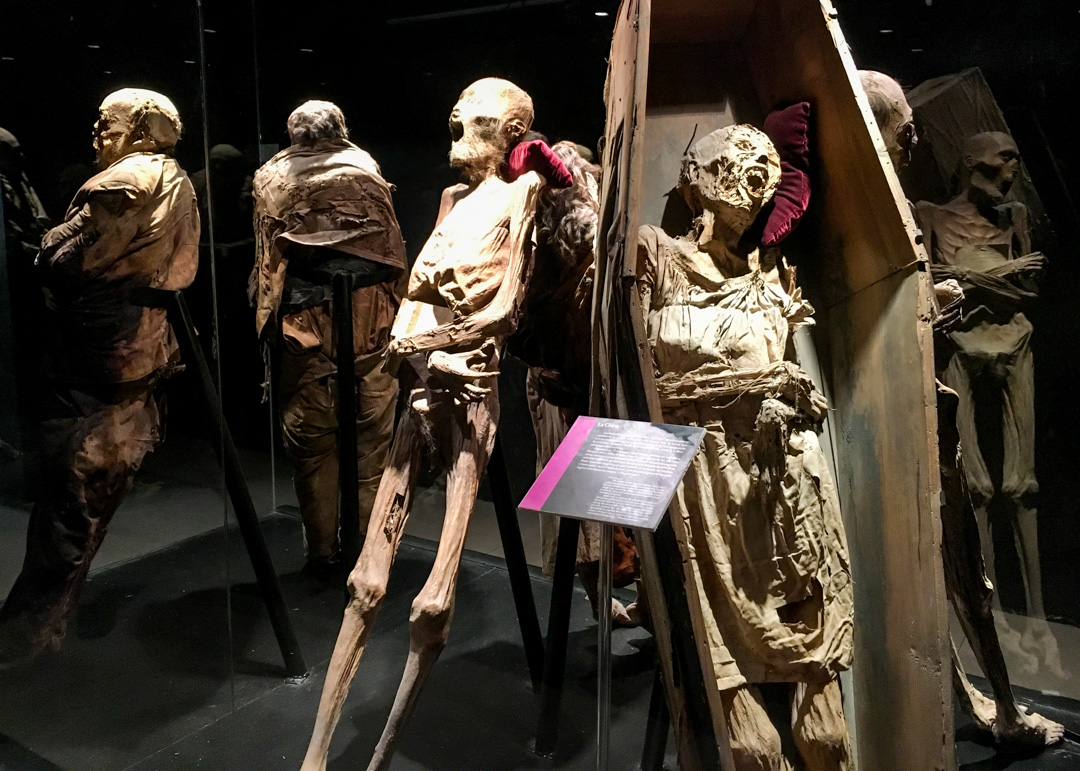
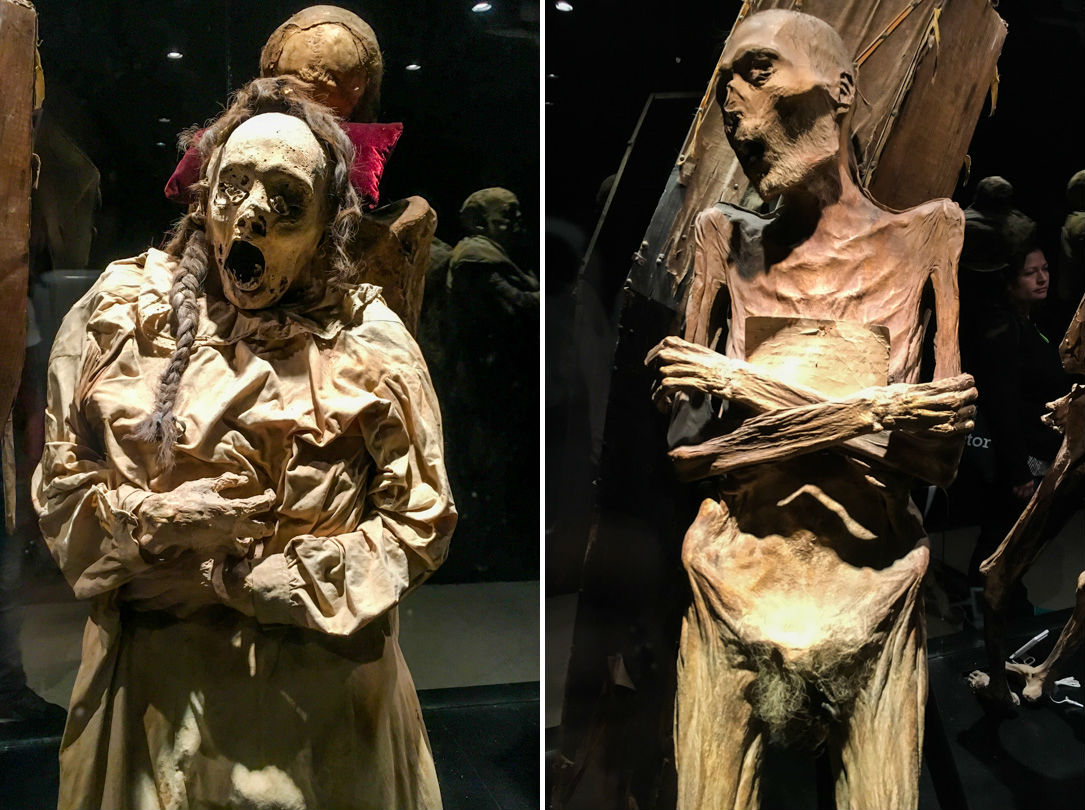
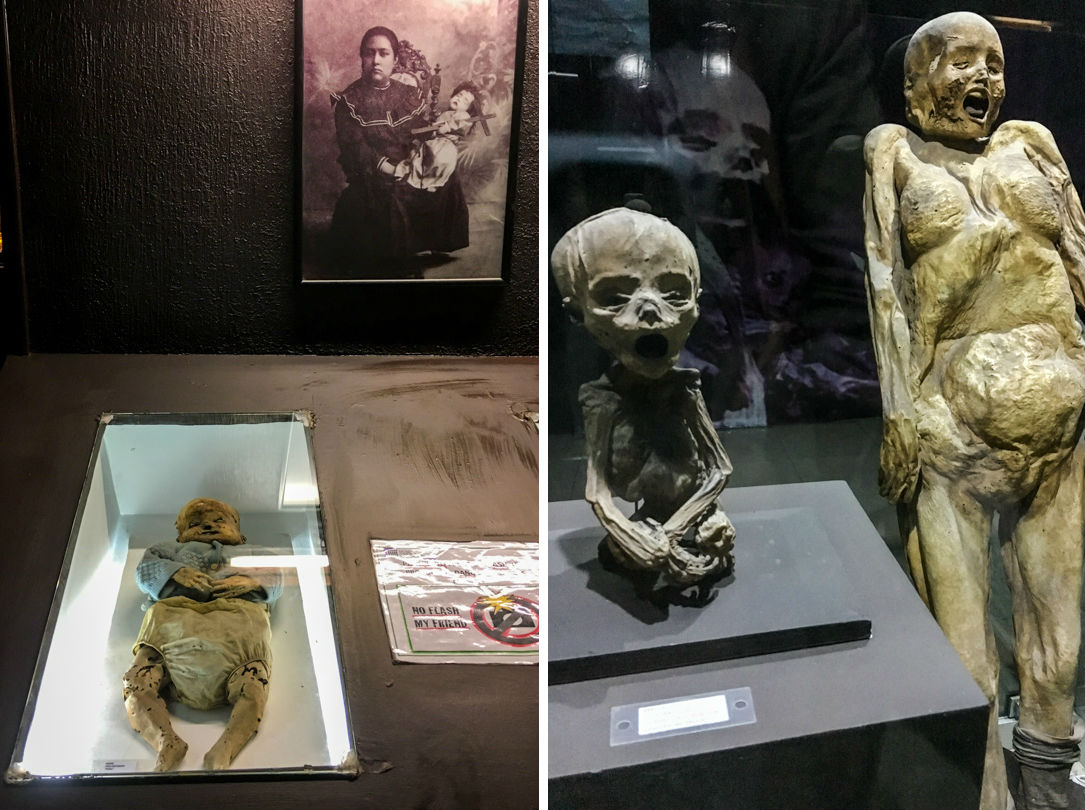
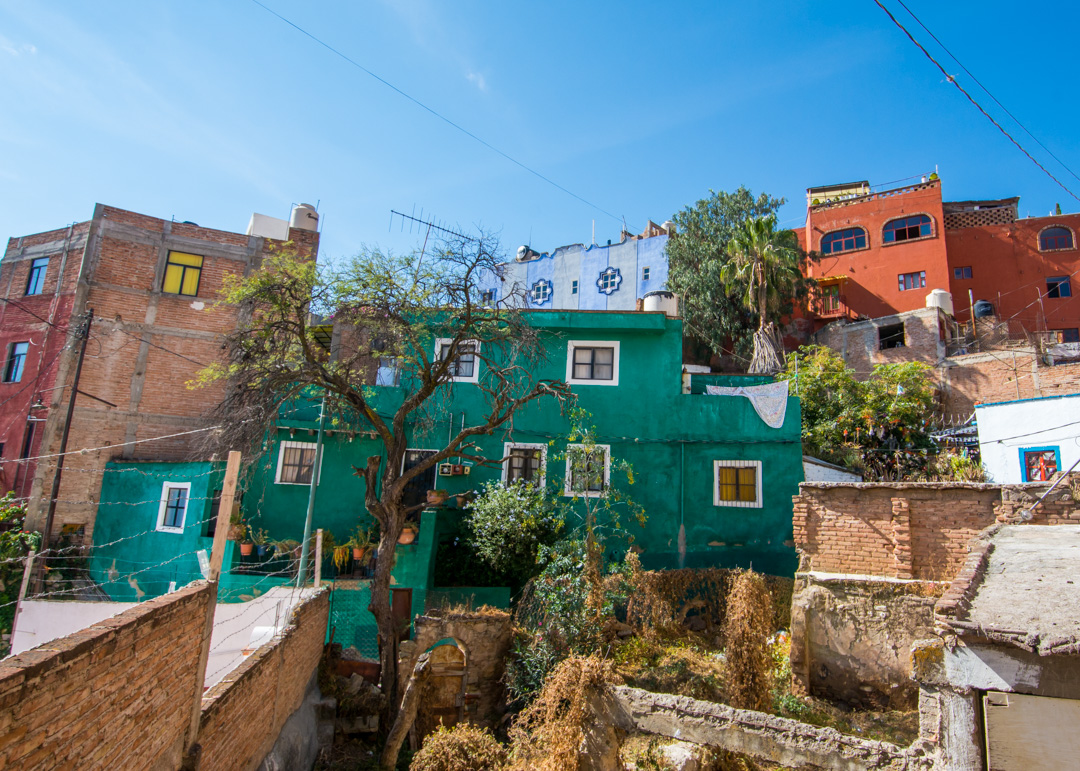

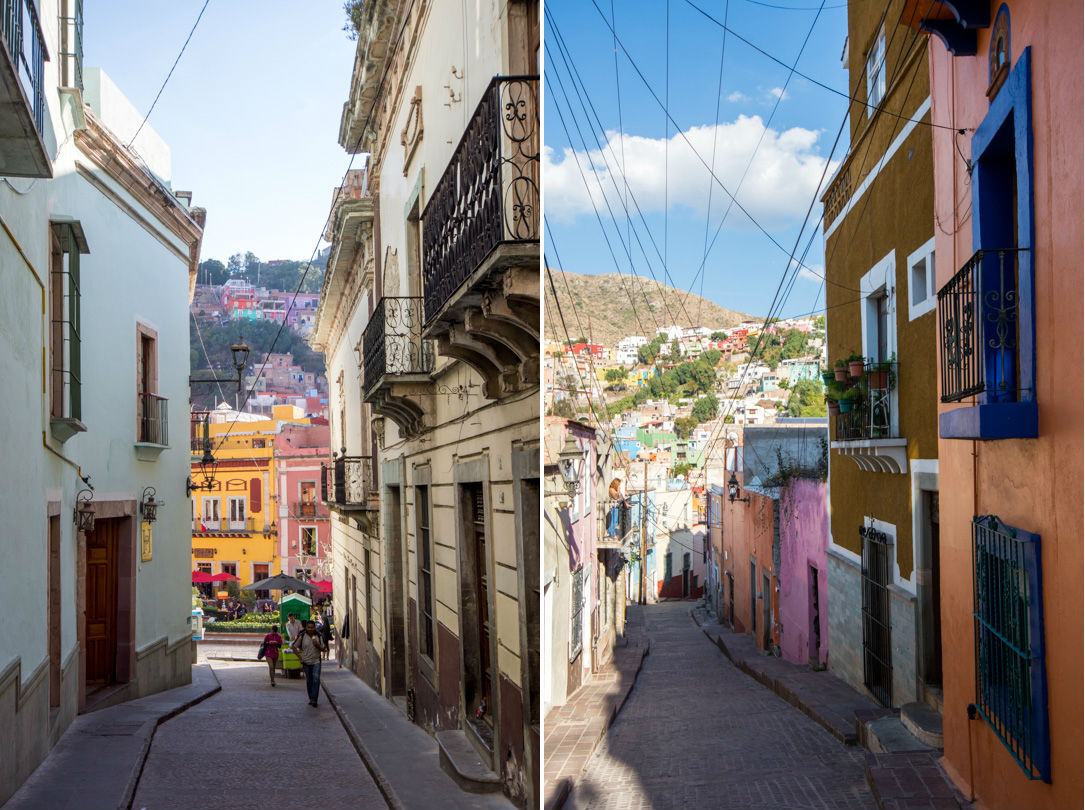
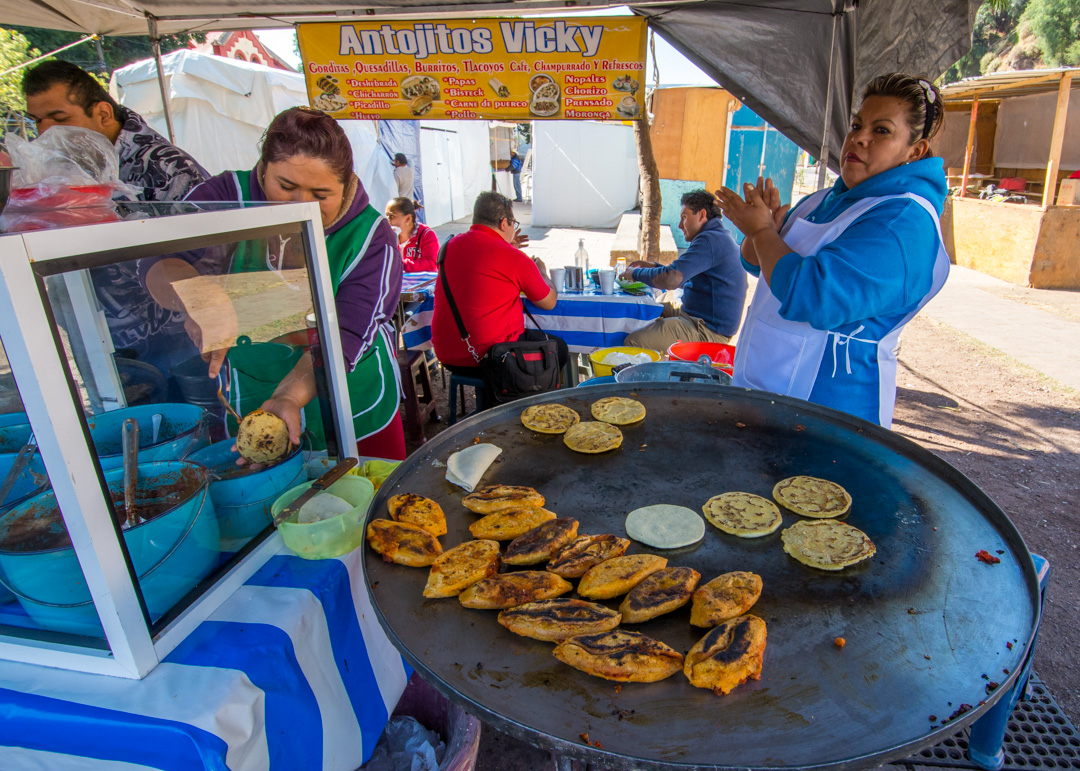
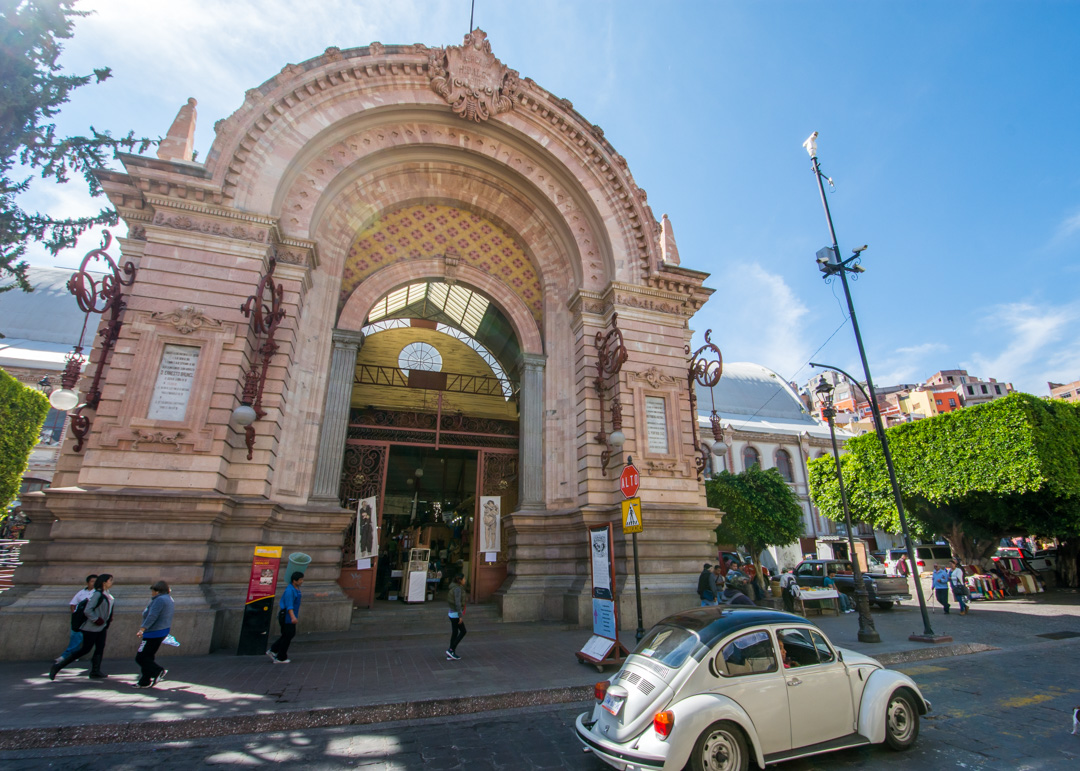
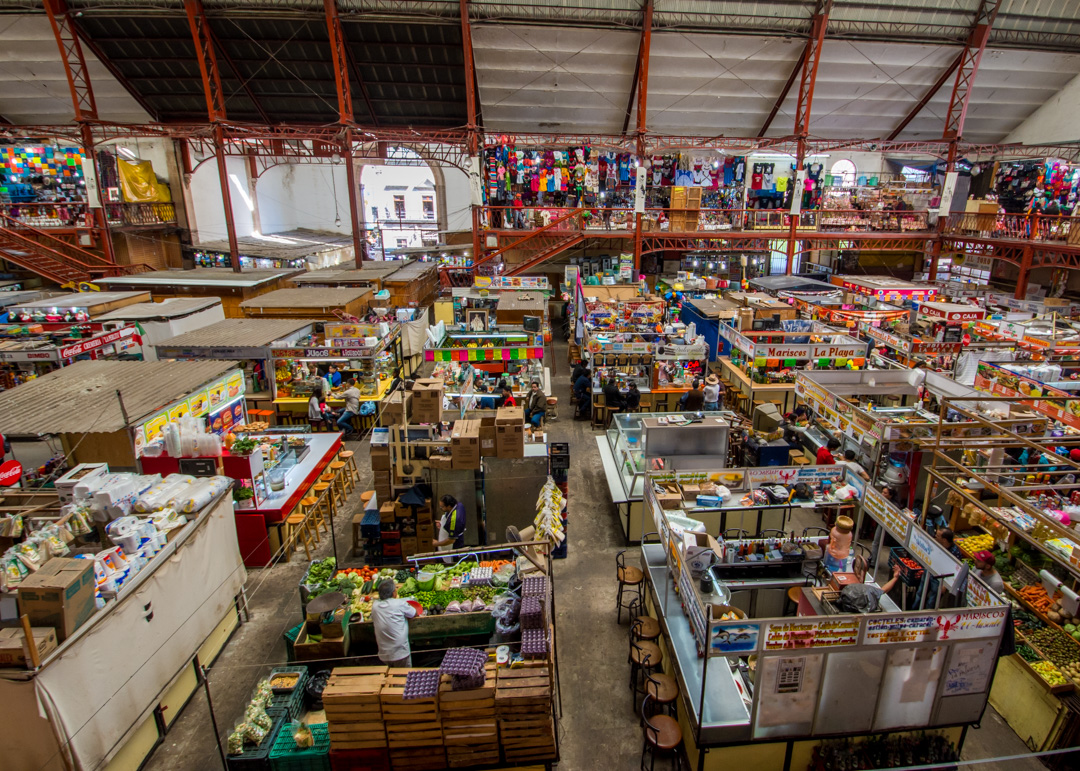
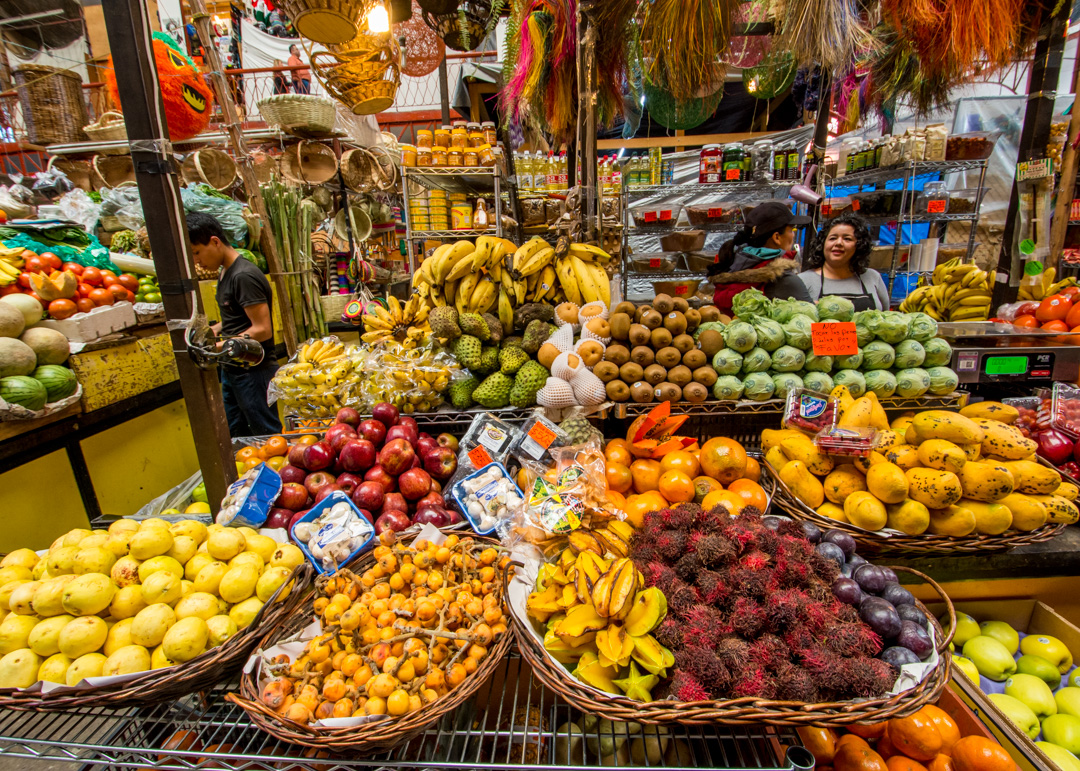
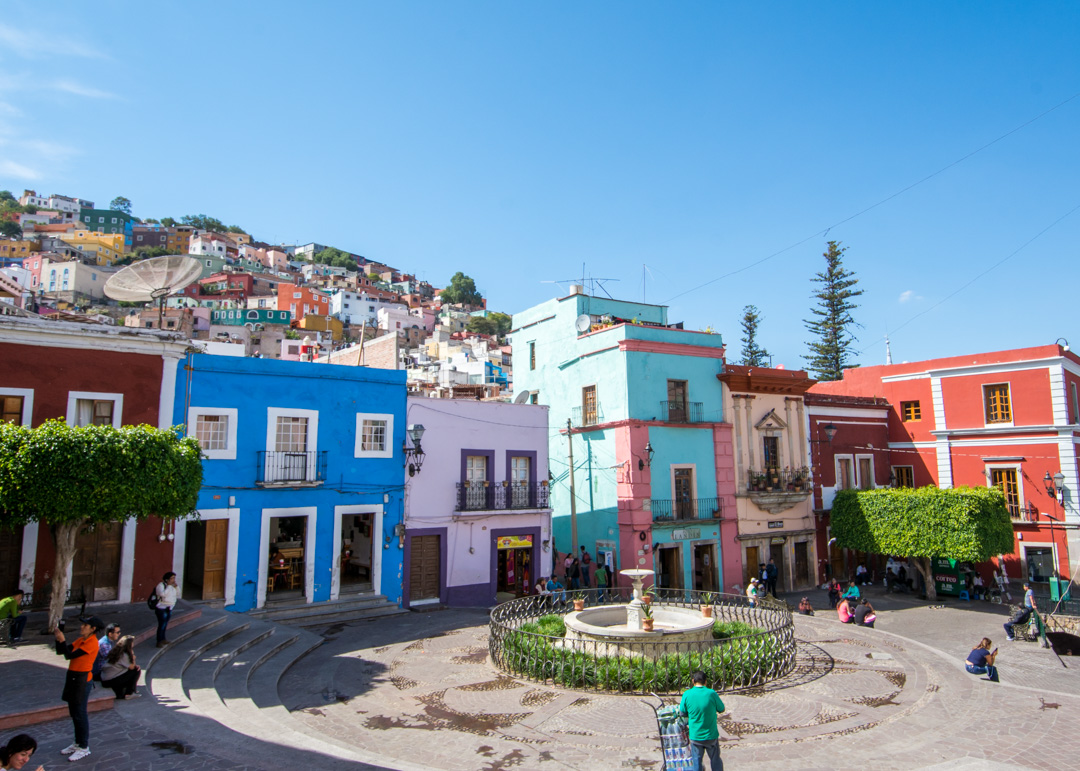

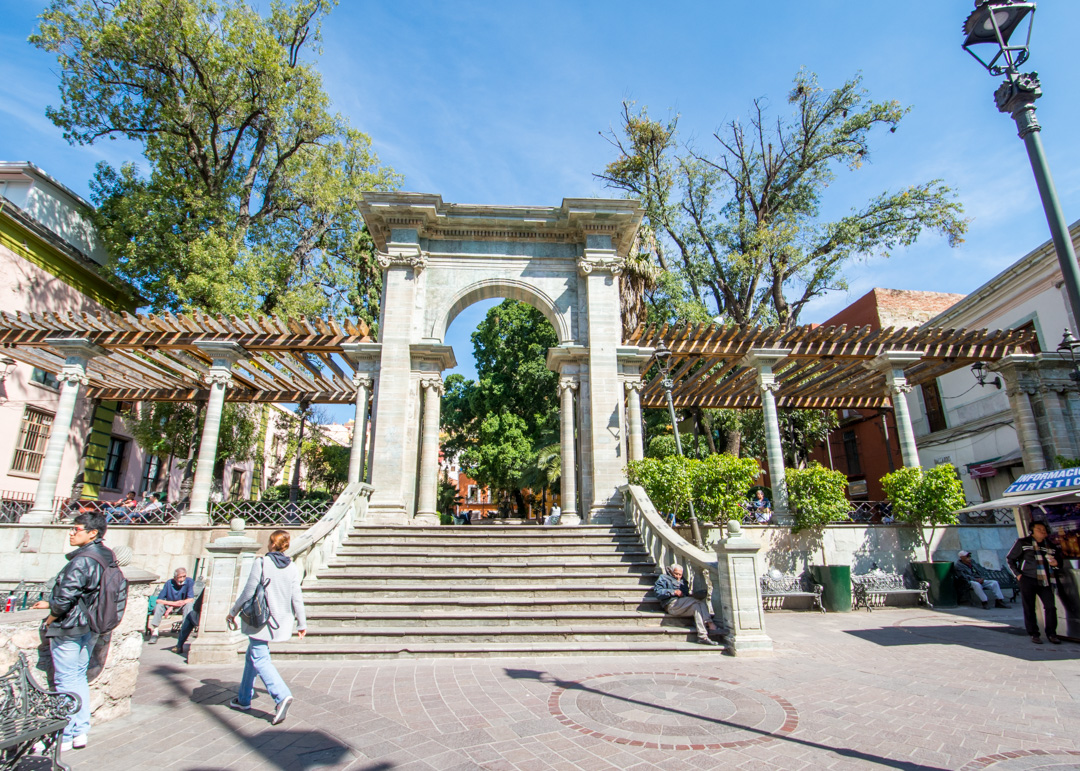
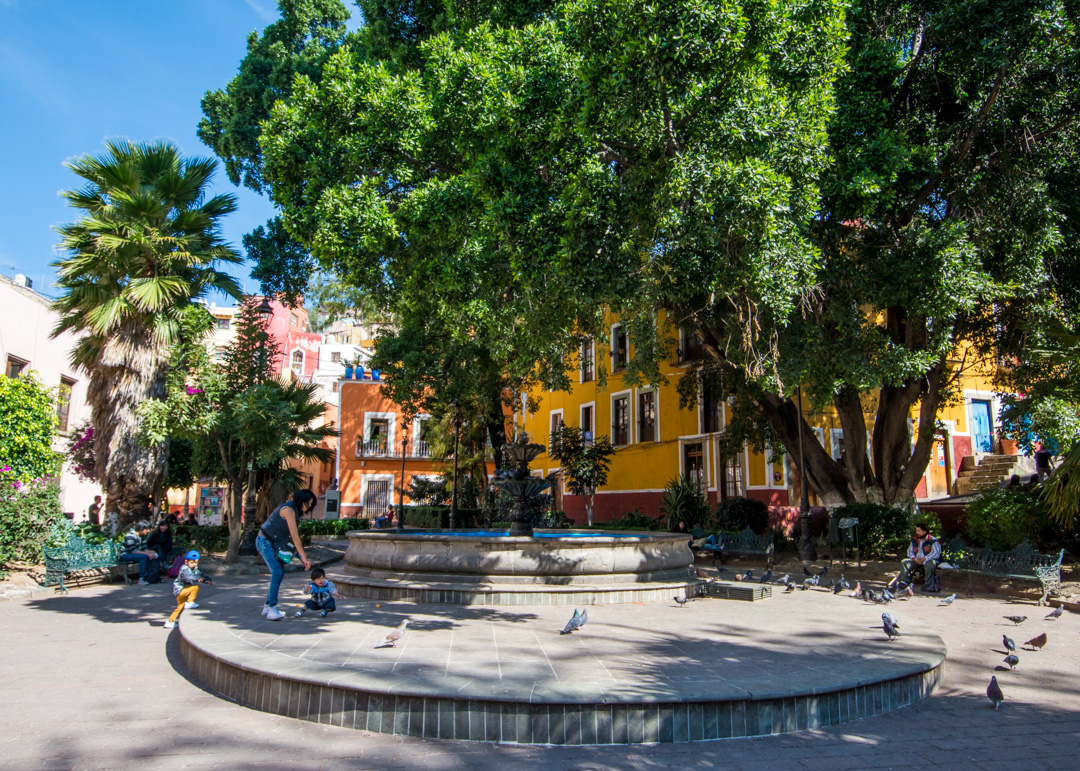
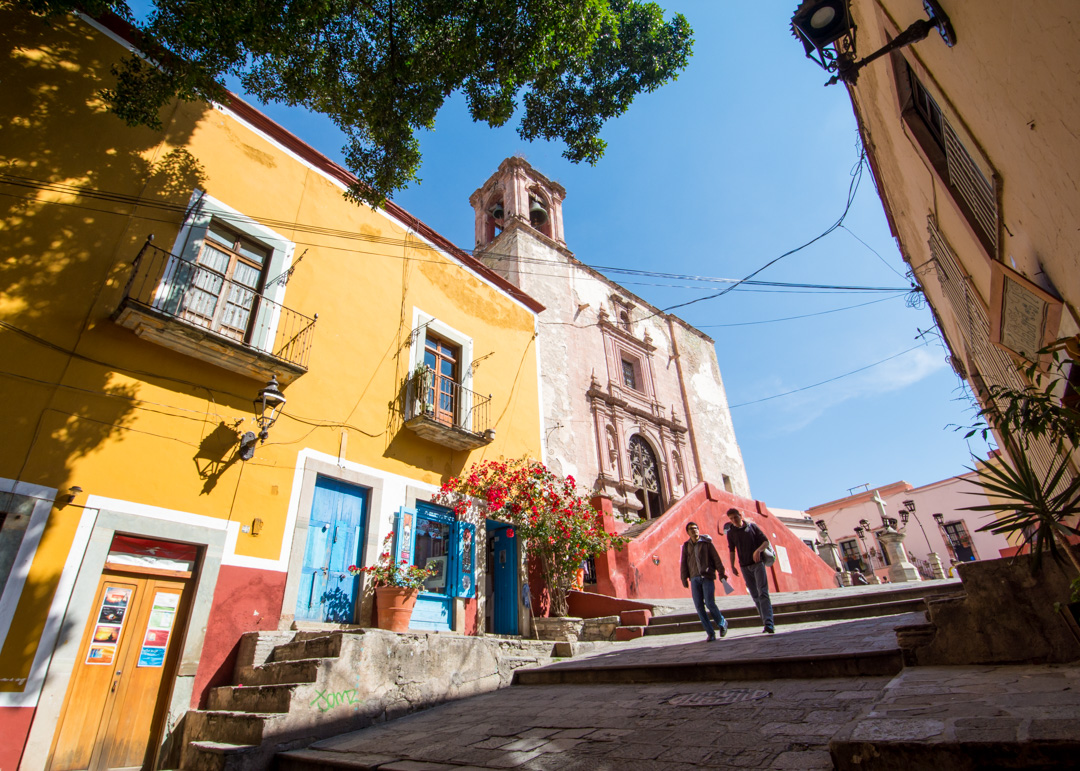
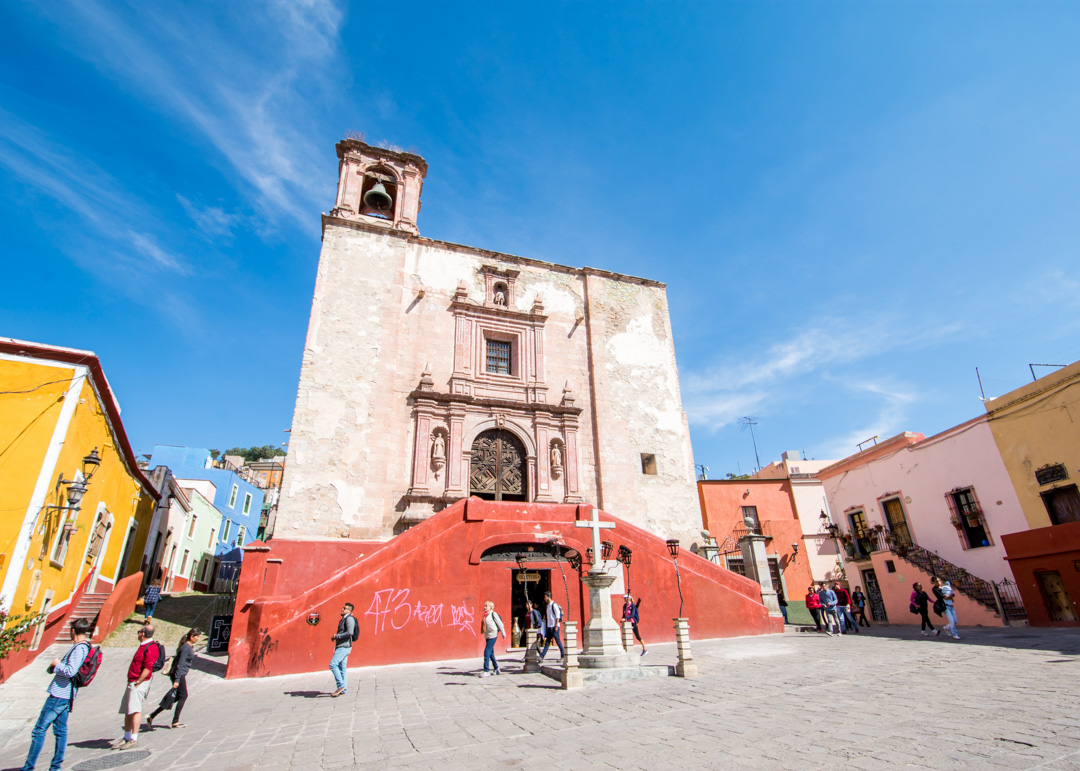
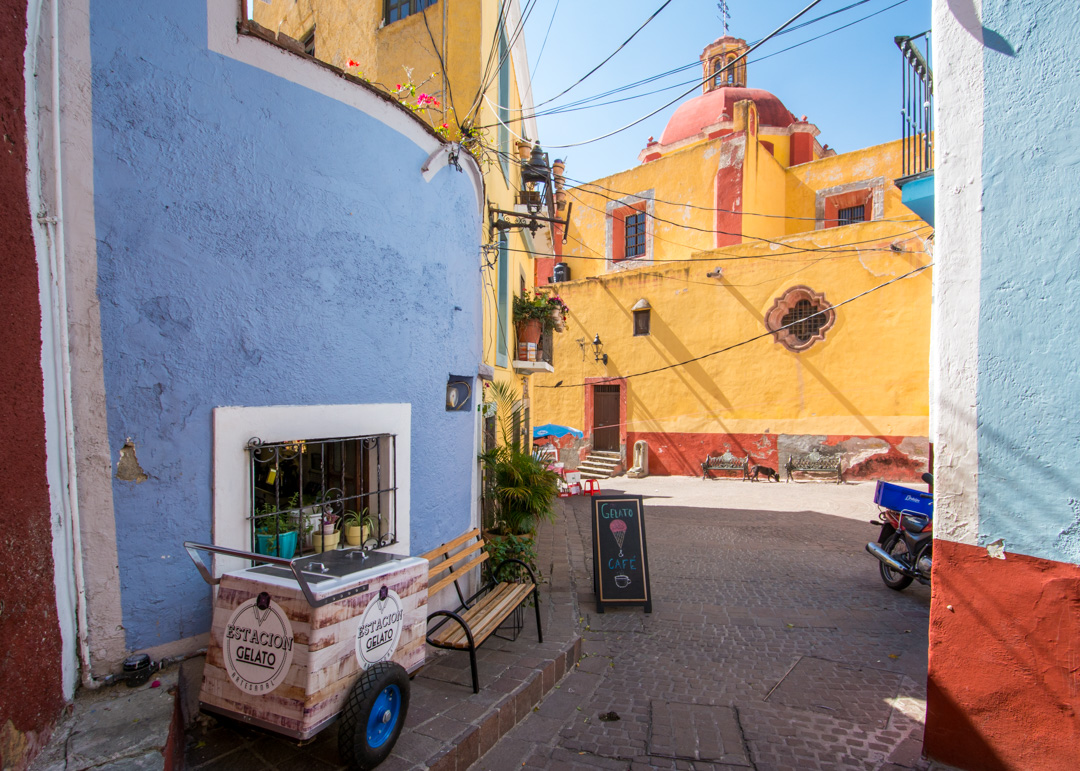
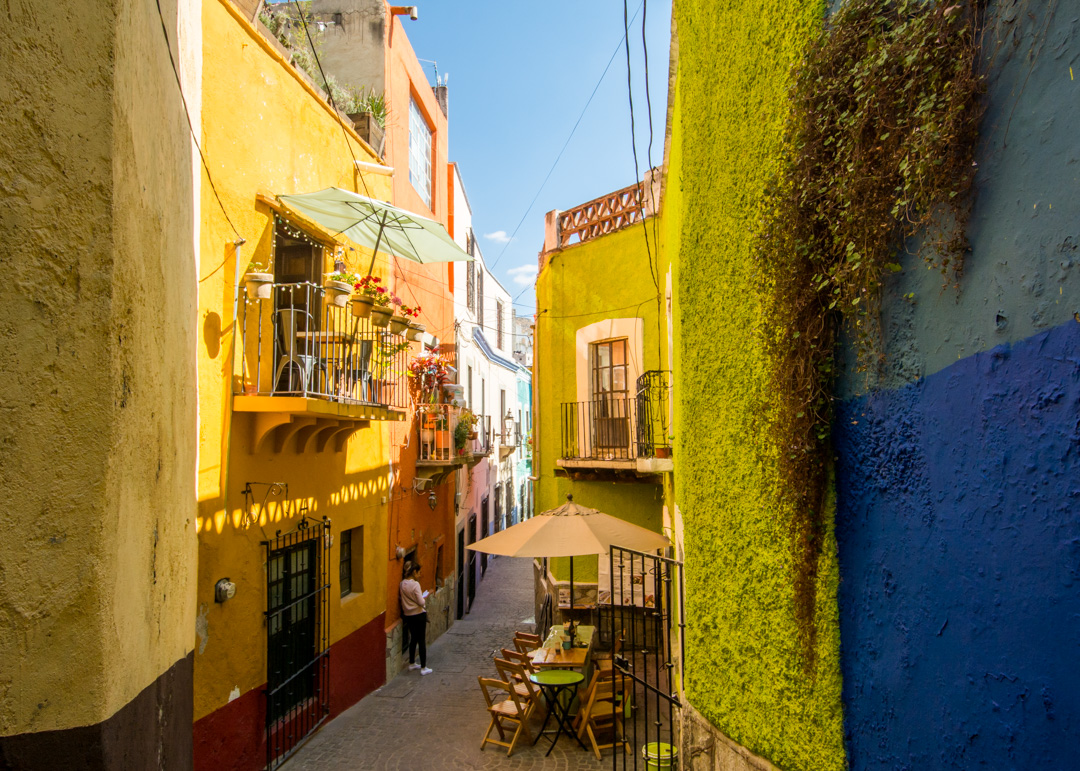
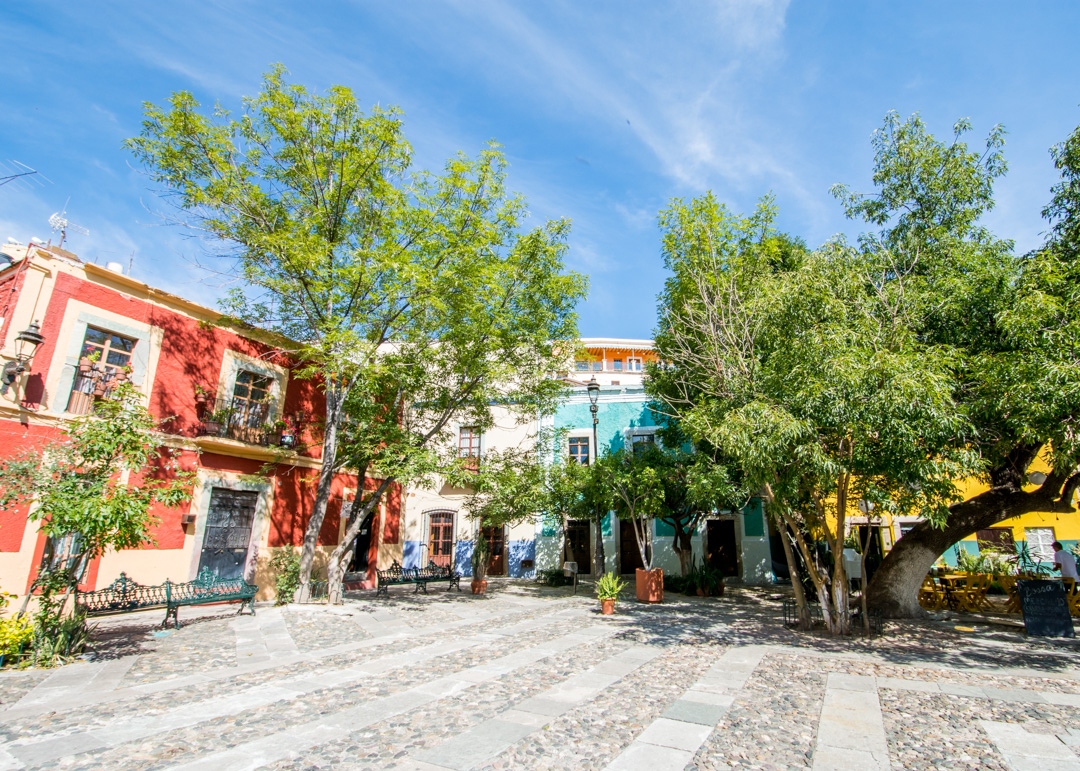
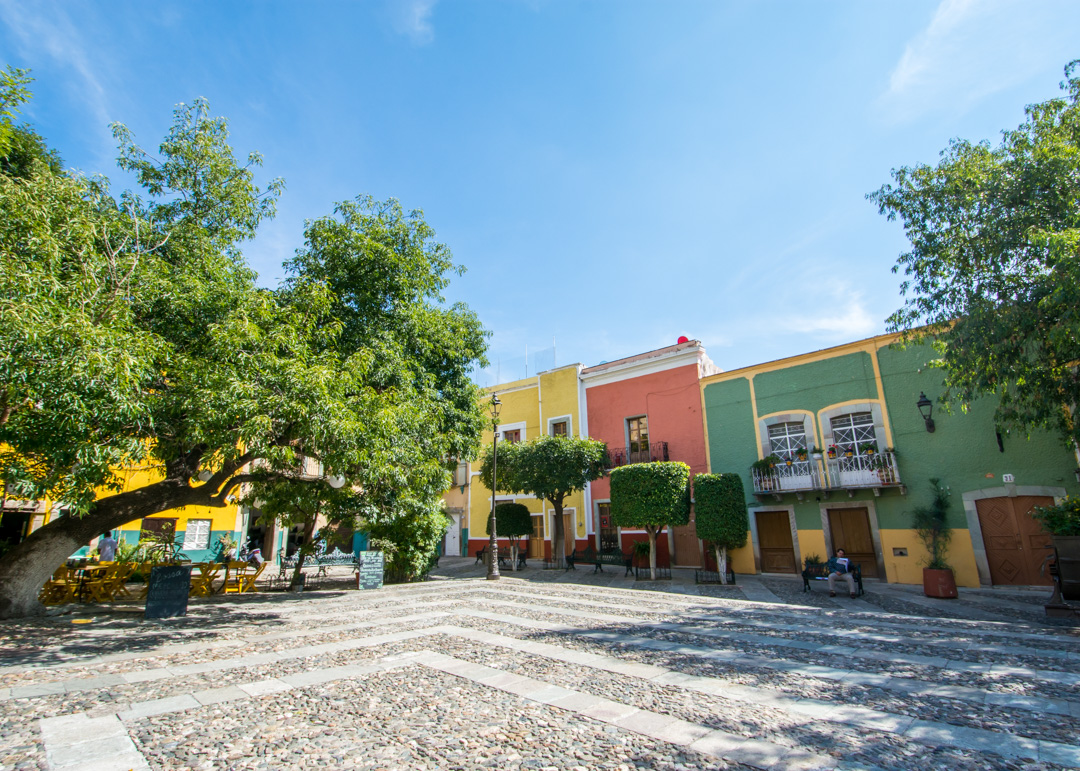
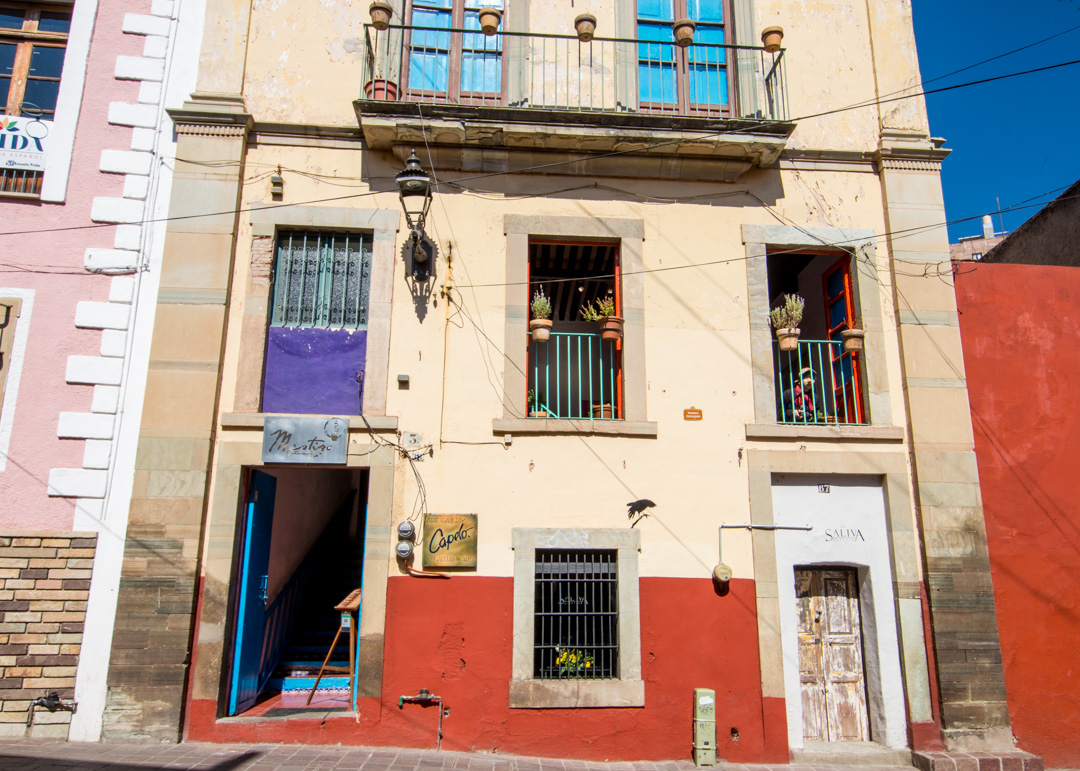
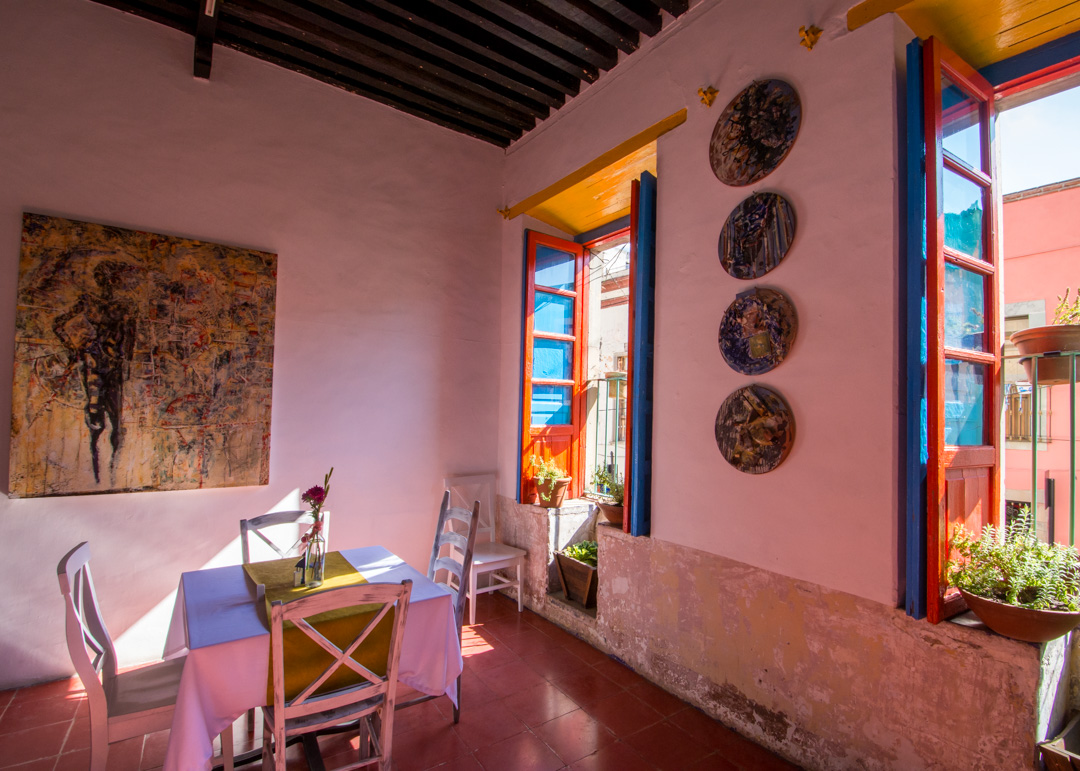
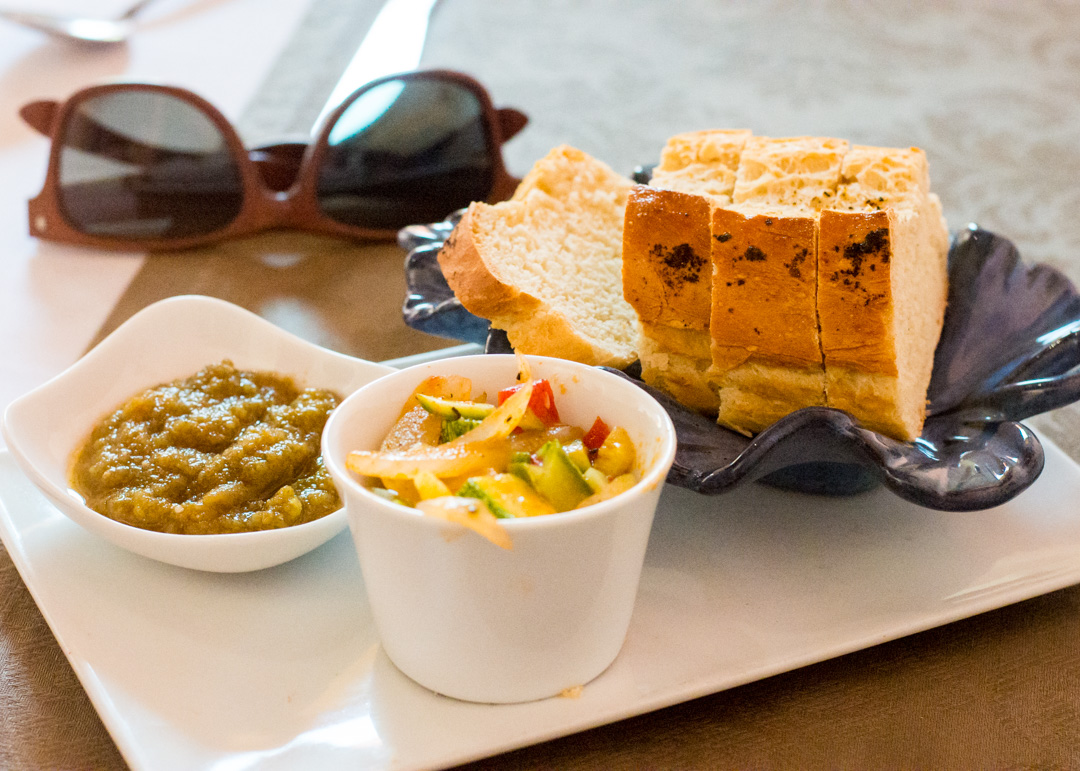
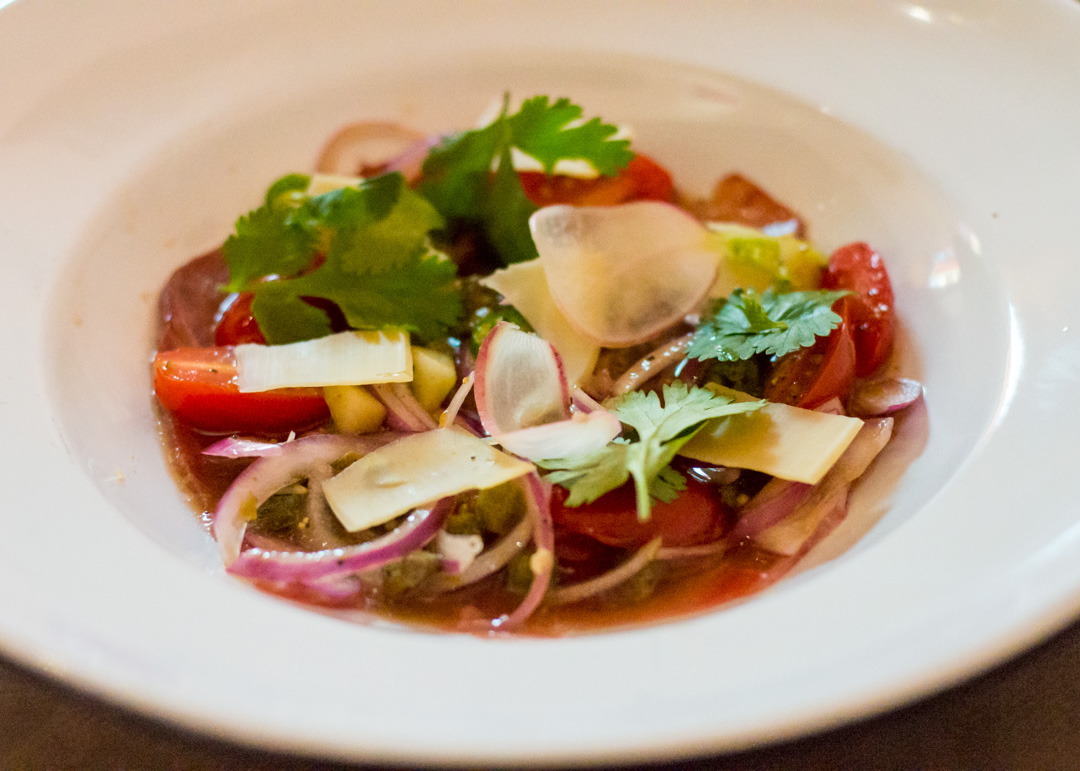
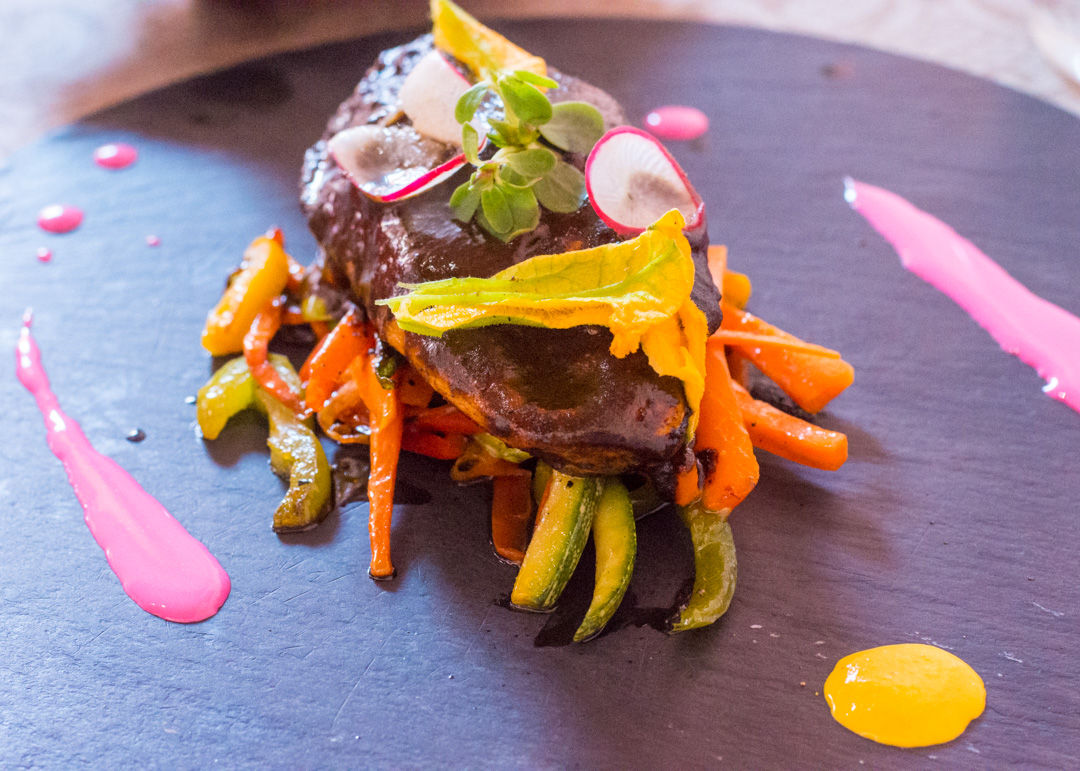
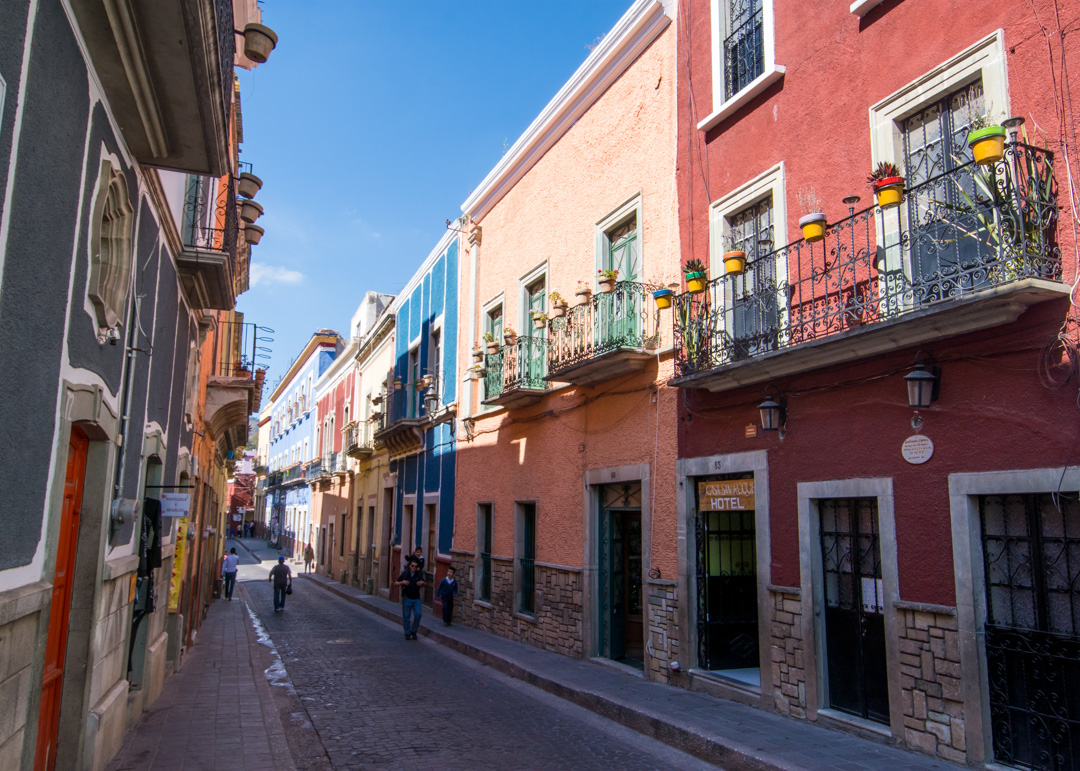
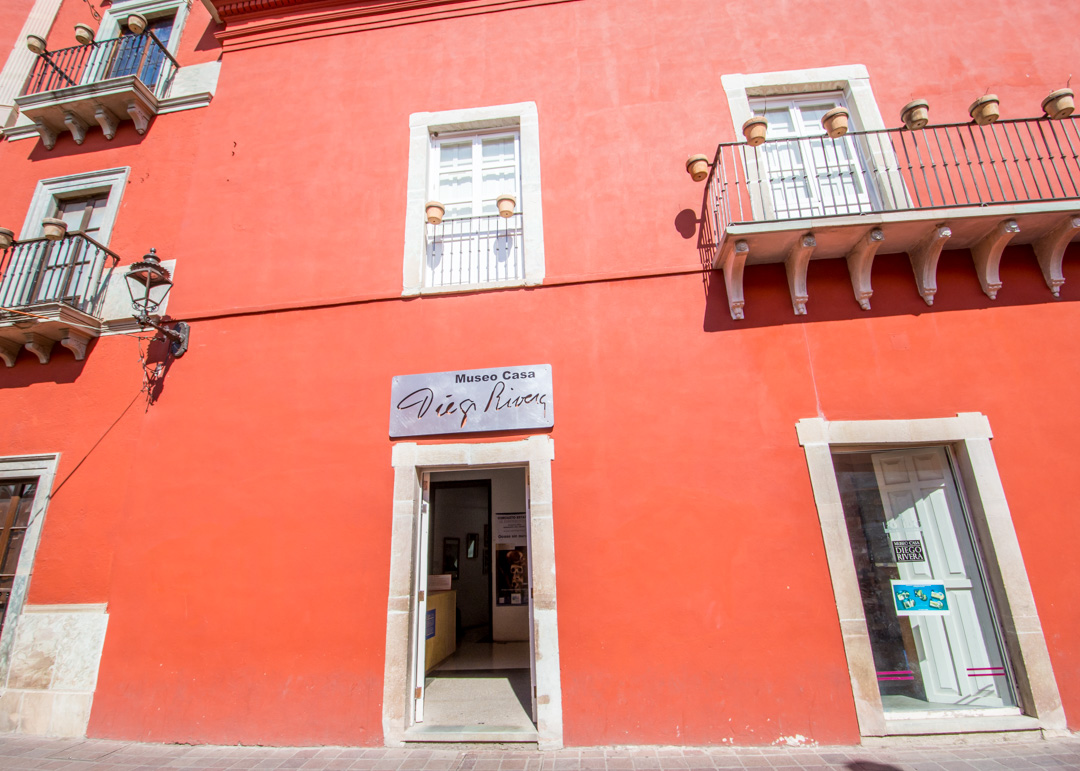
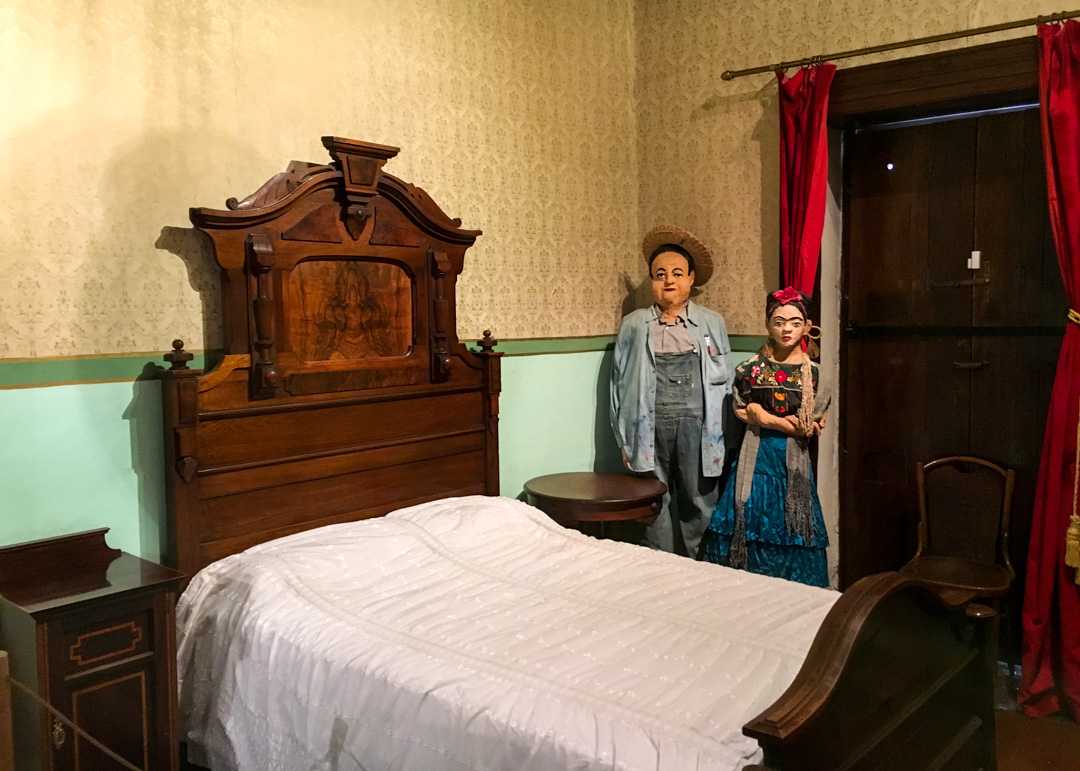
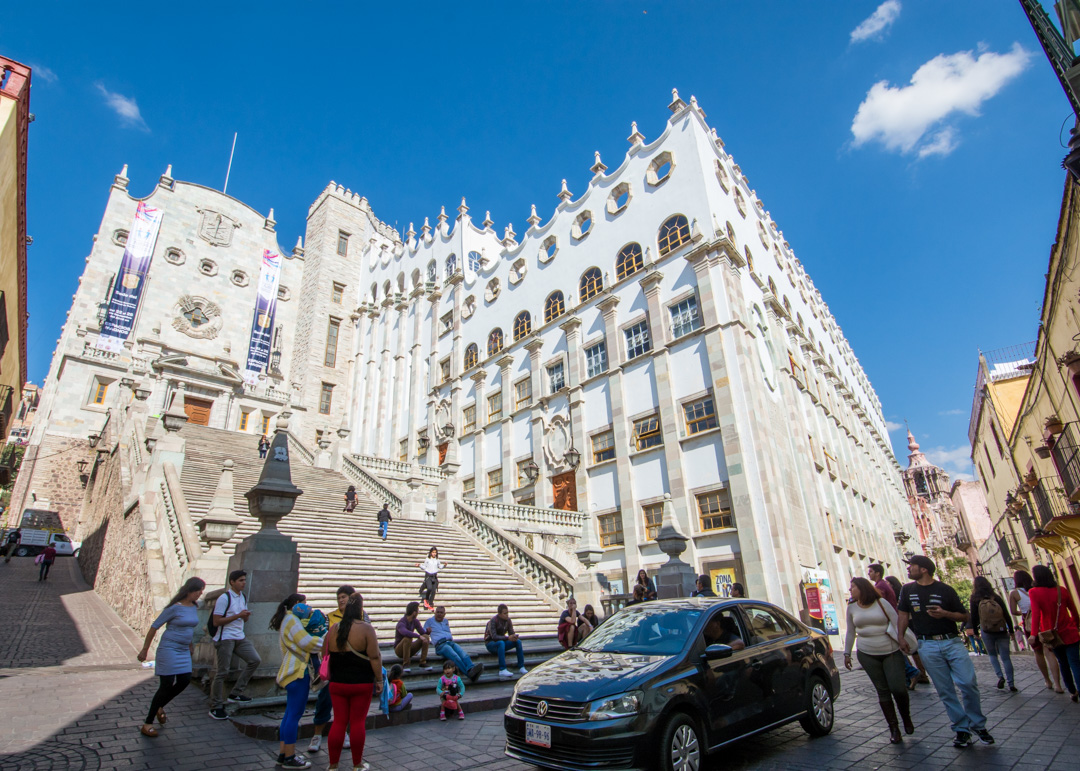
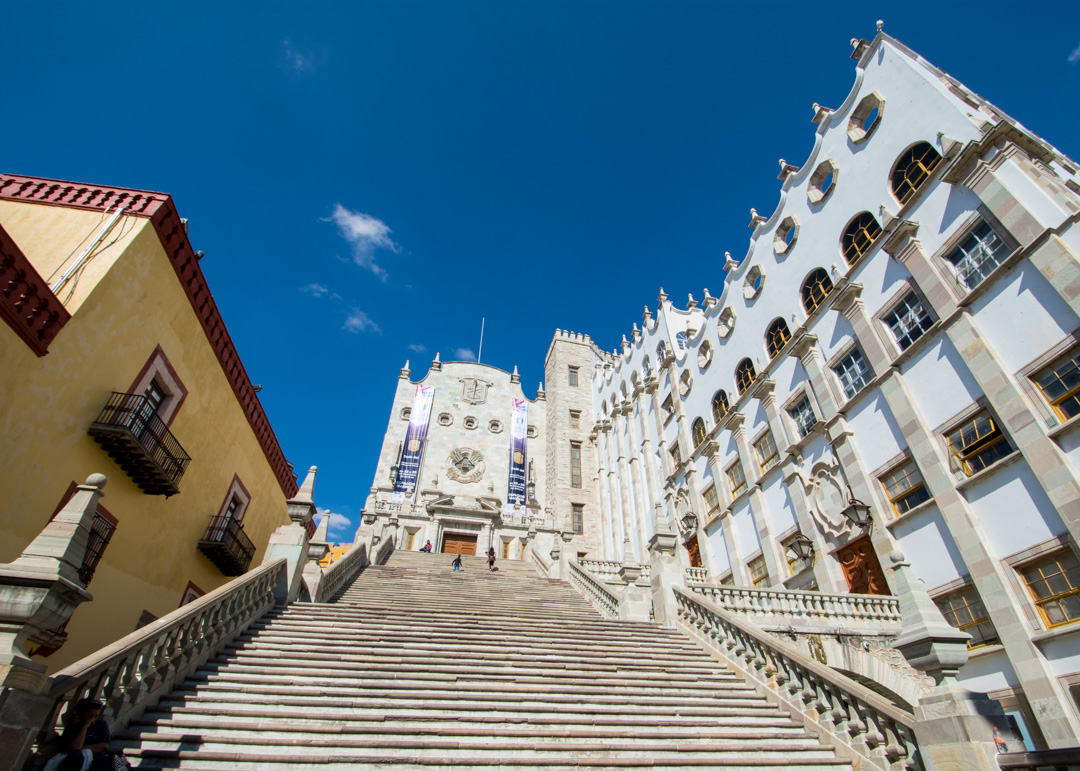
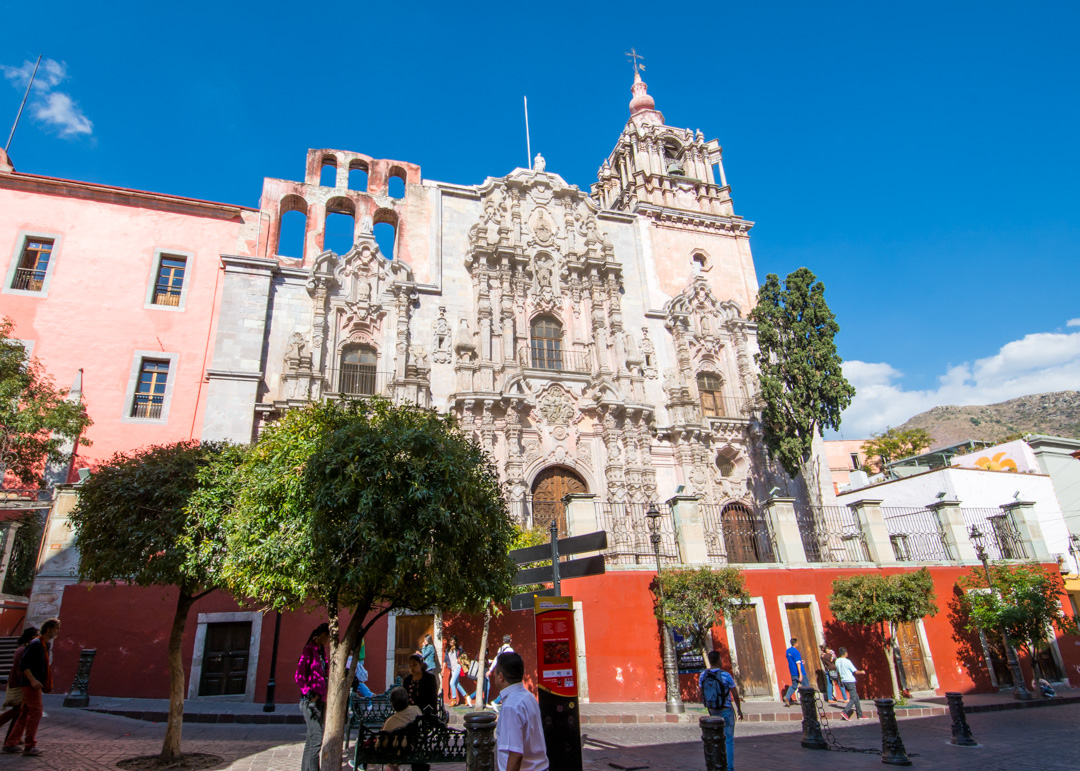
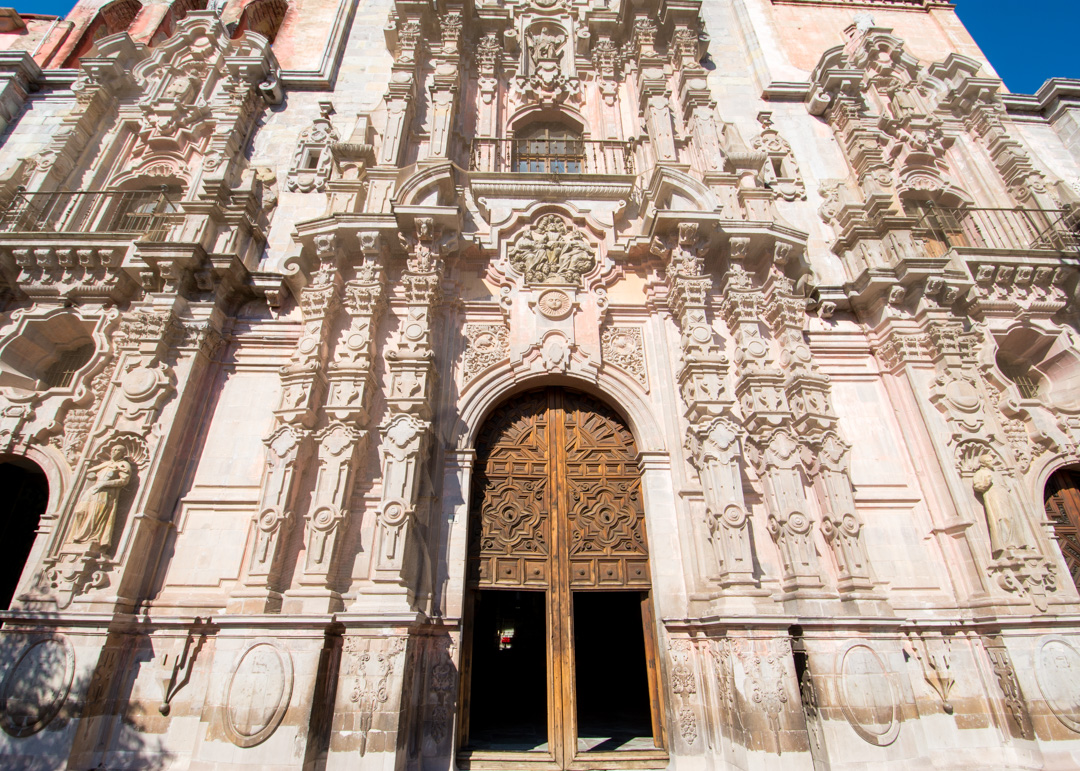
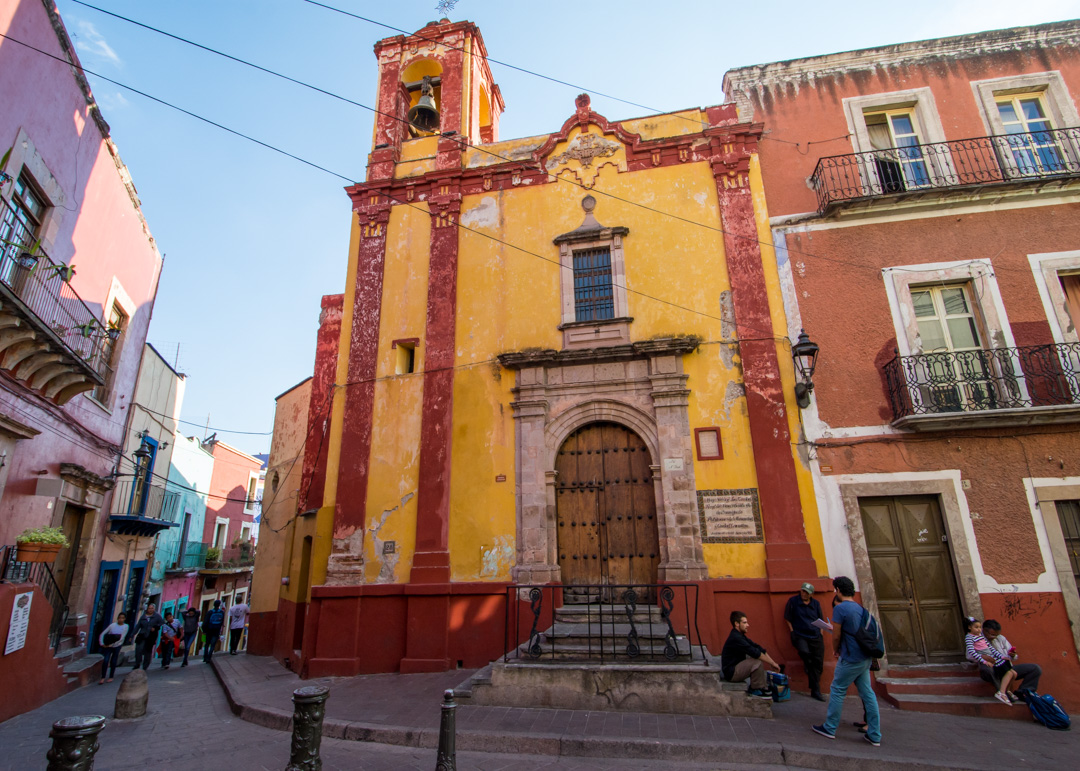
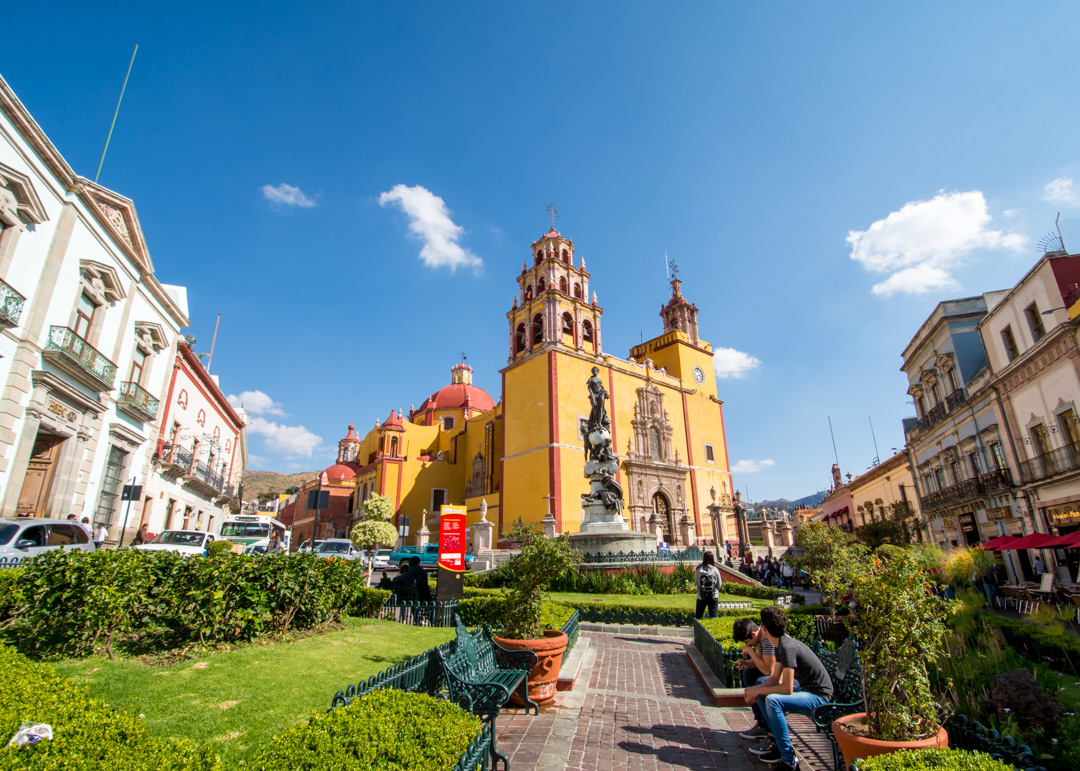
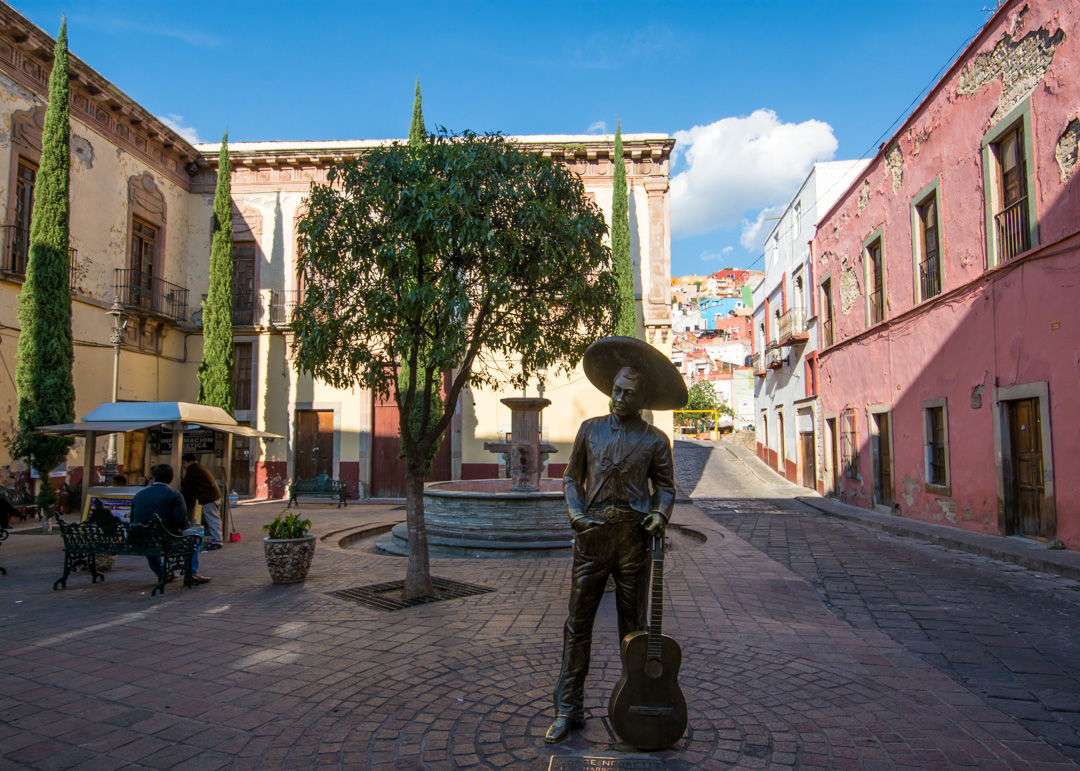
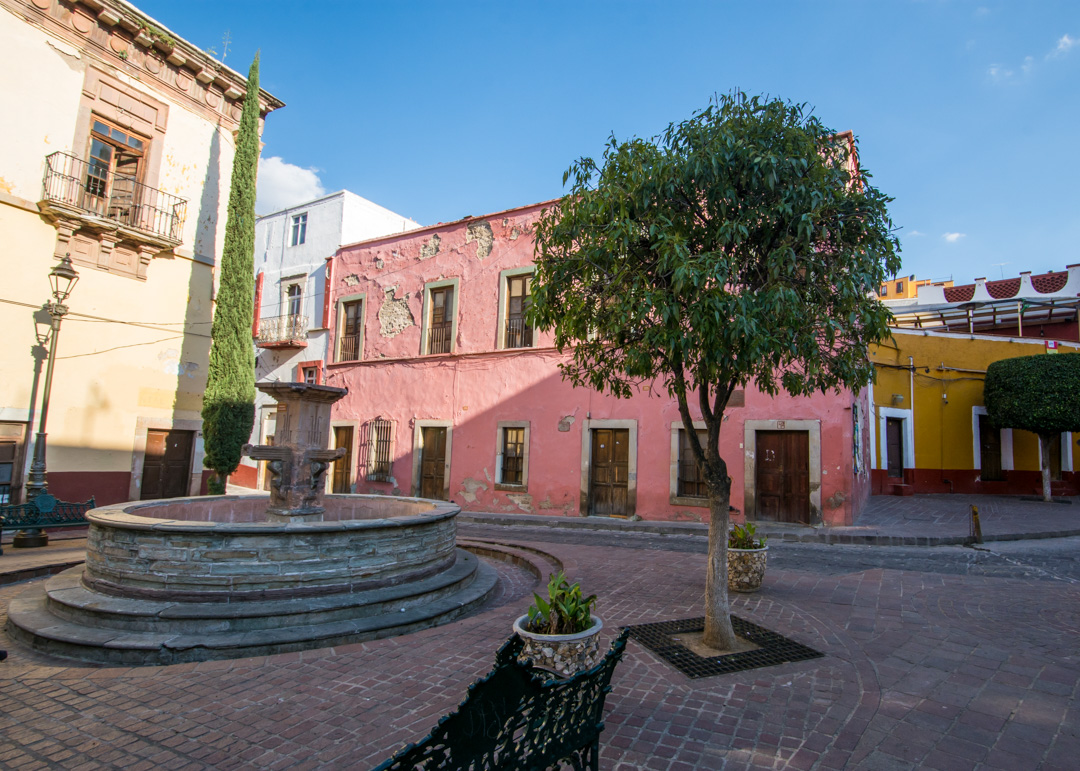
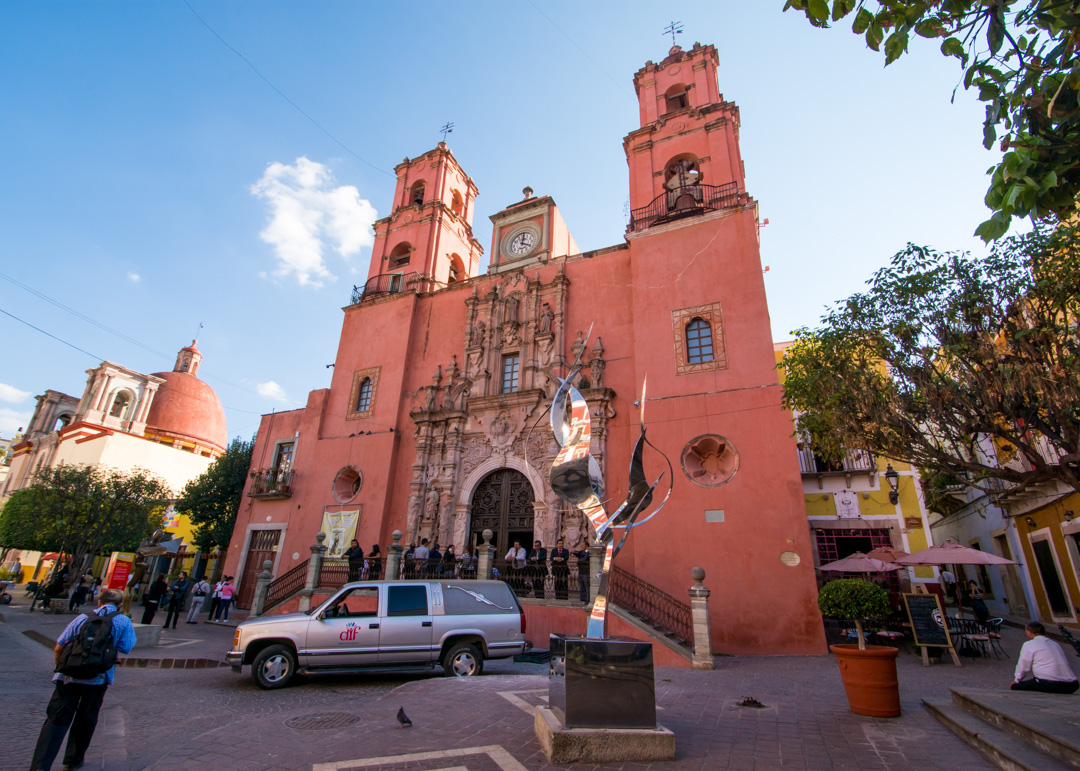
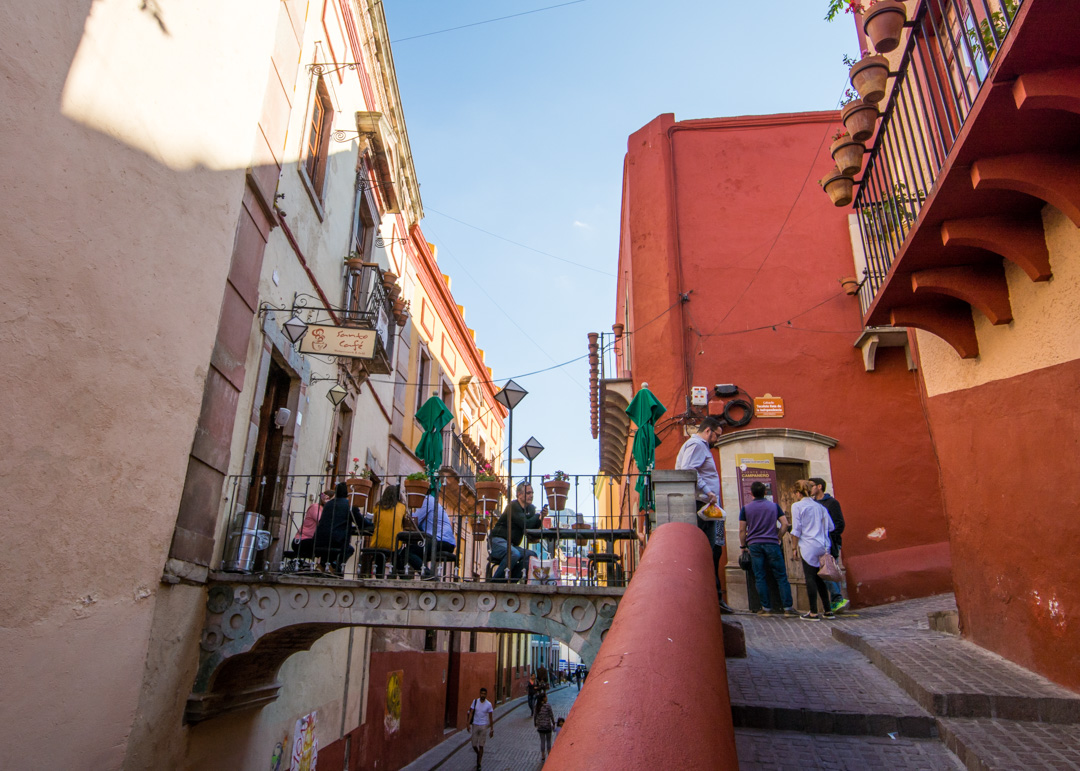
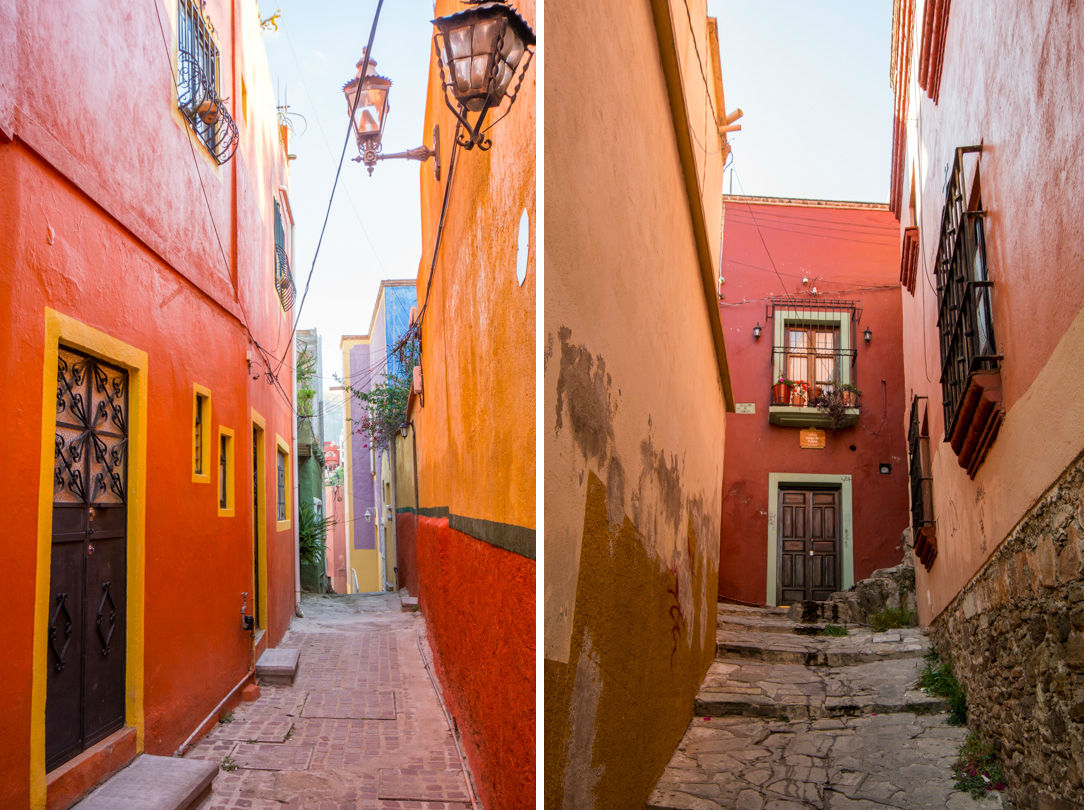
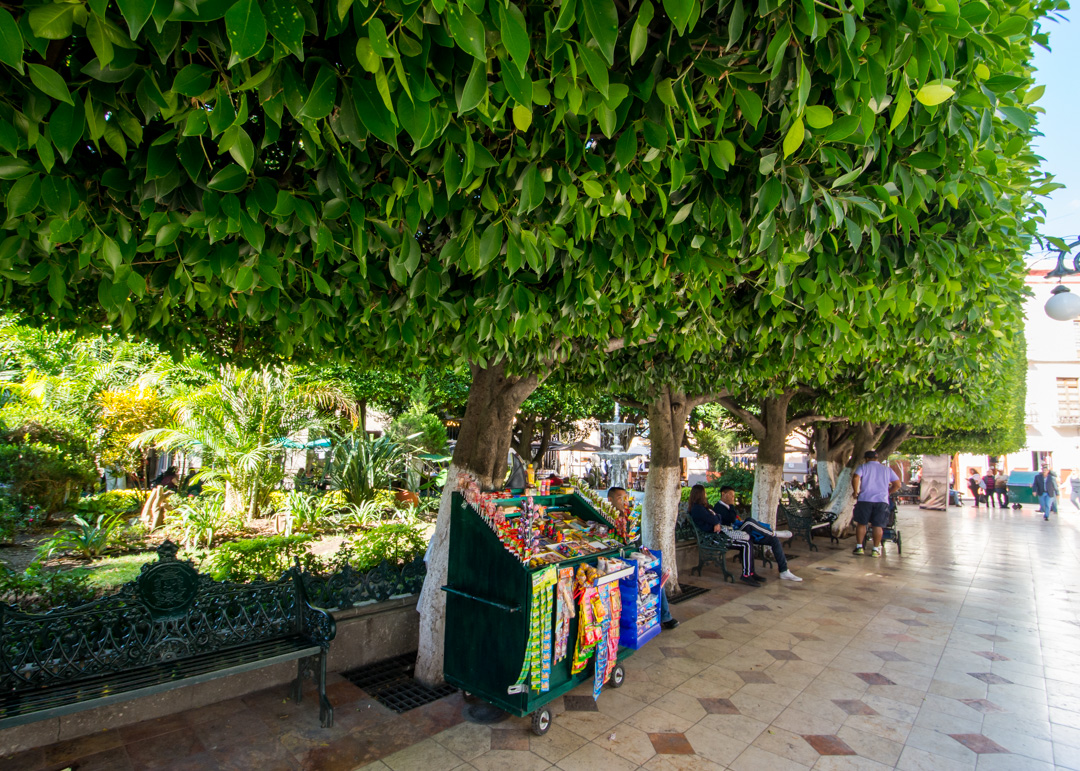
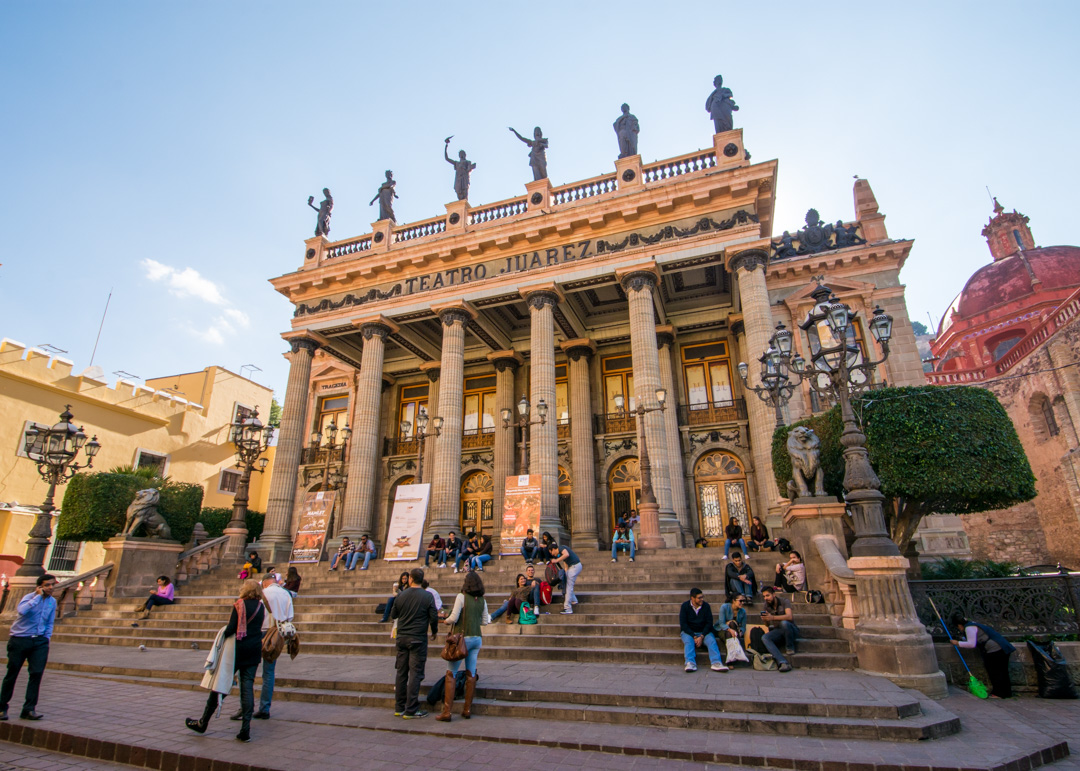
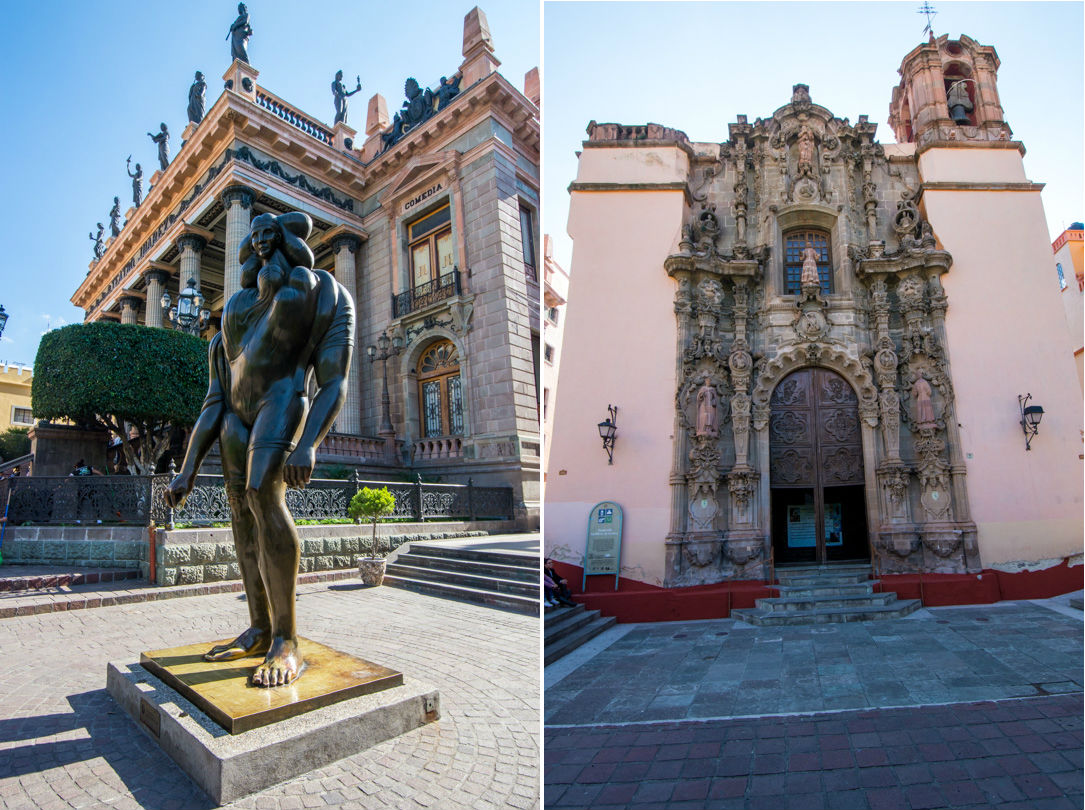
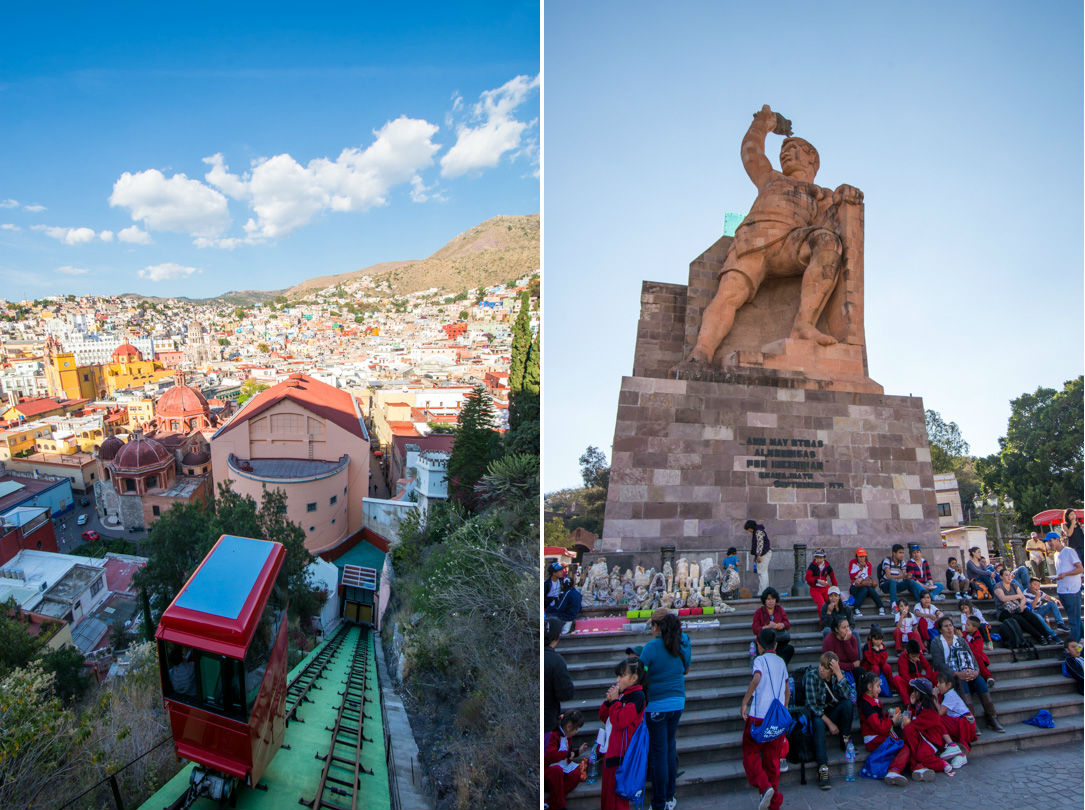
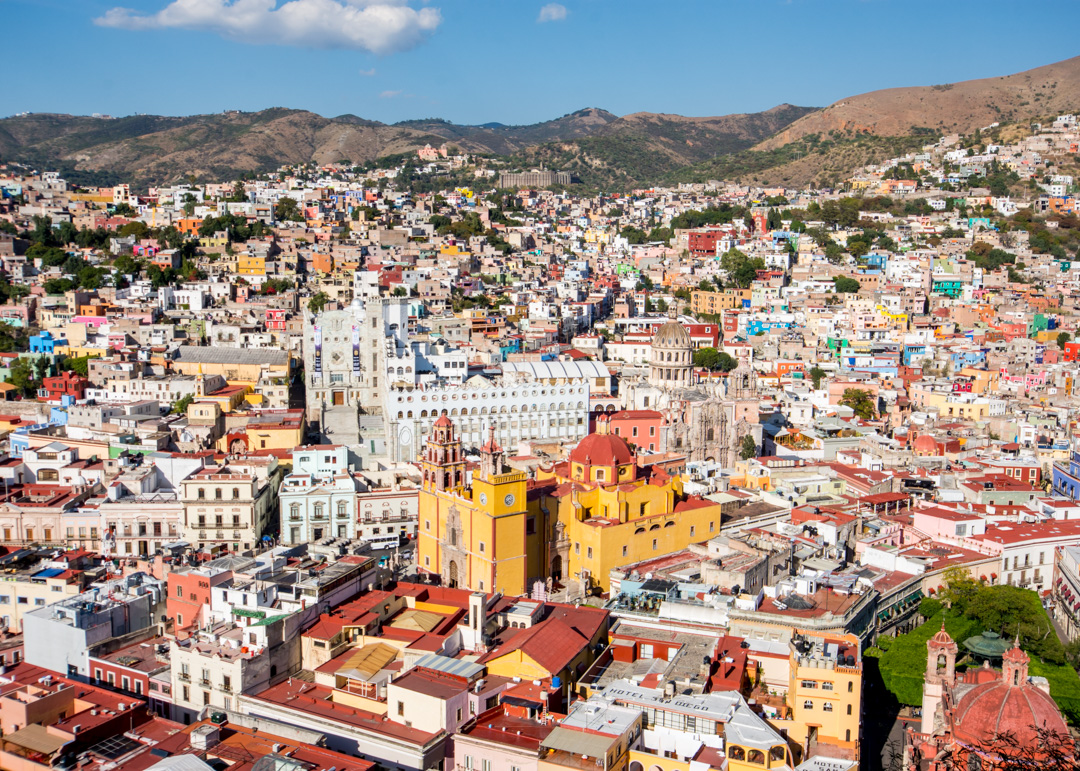
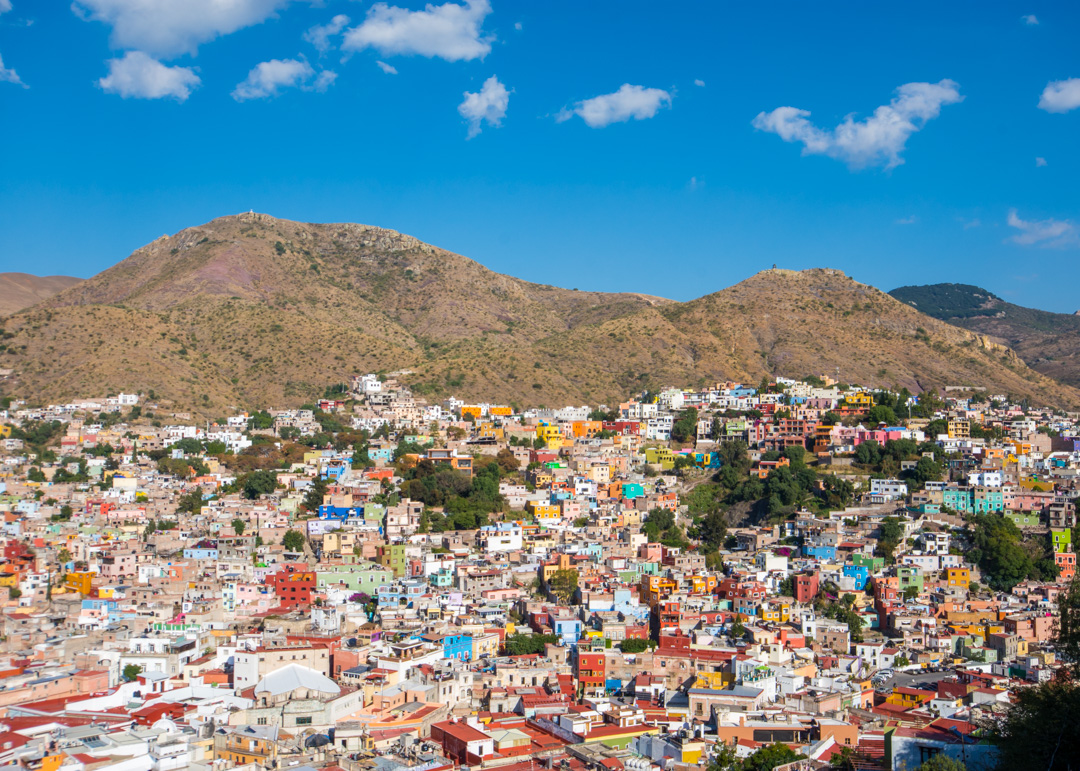
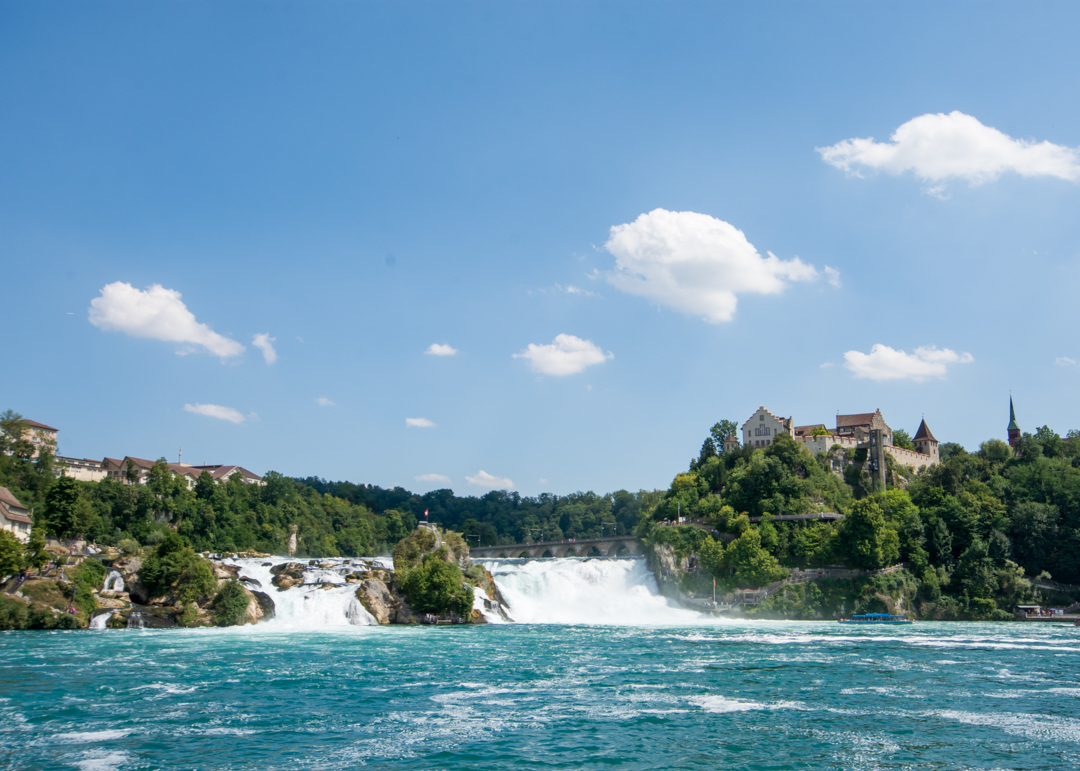
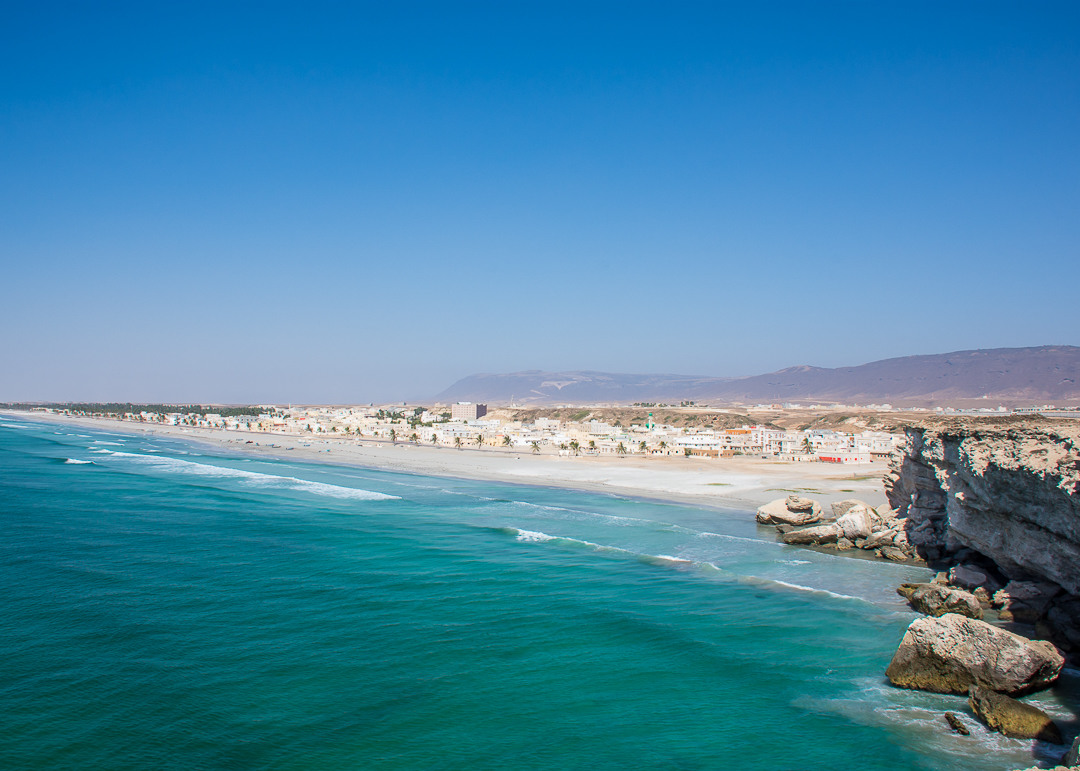



So nice to see a post! And such a gorgeous one, at that.
I am so delighted to see this blog up and running again. I love the ability to travel through your glorious photos and commentary. Been longing for Mexico.
Thank you